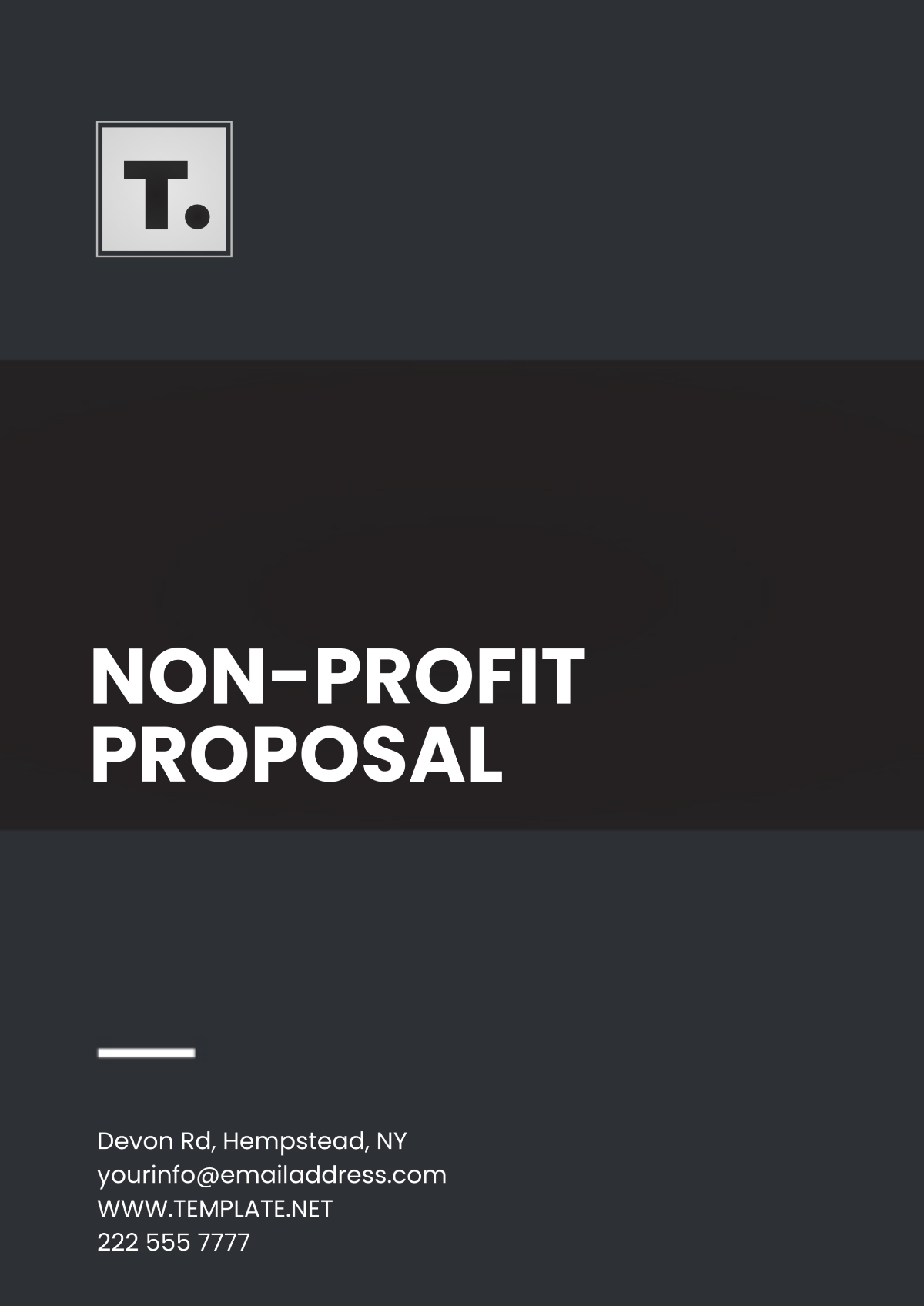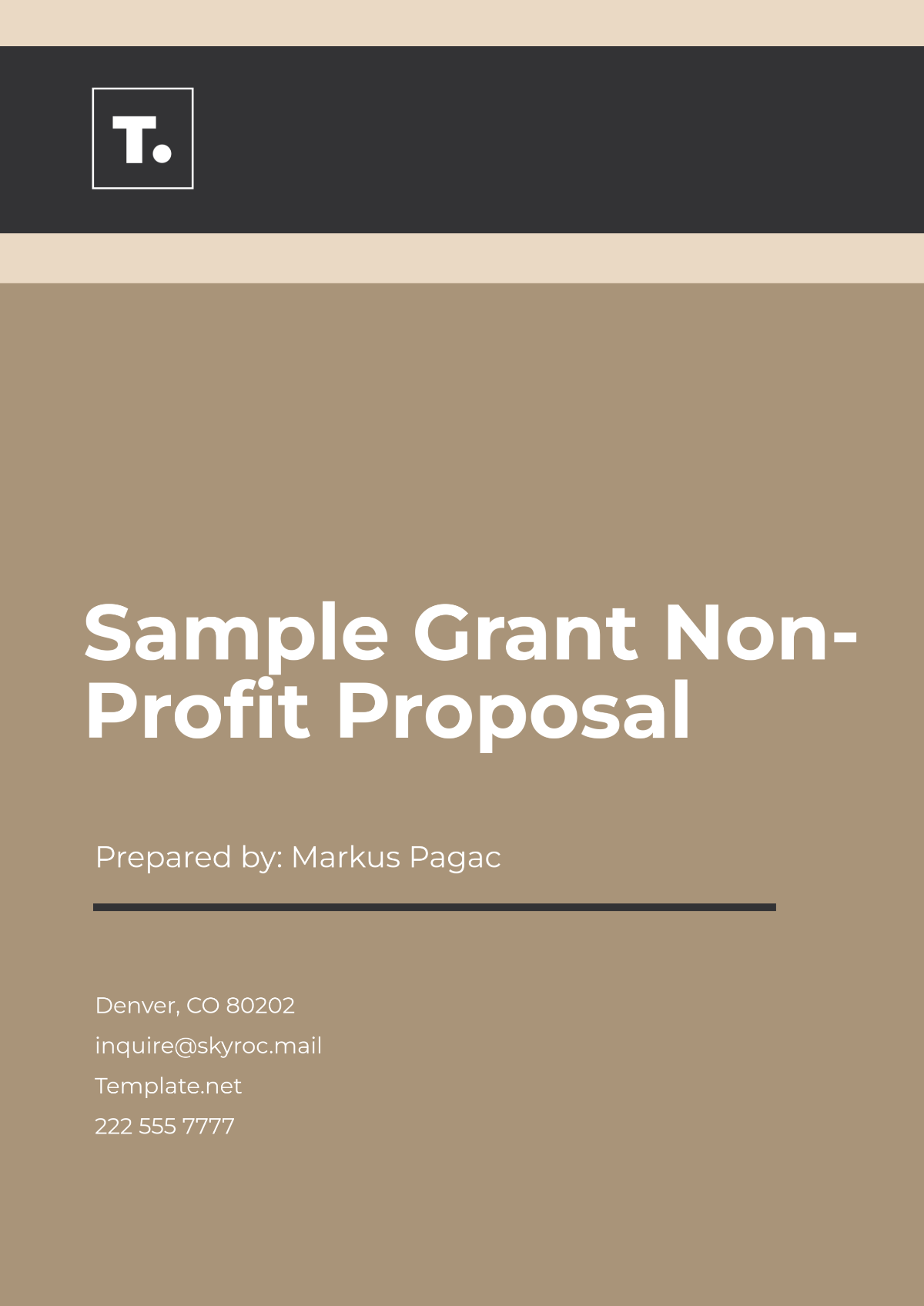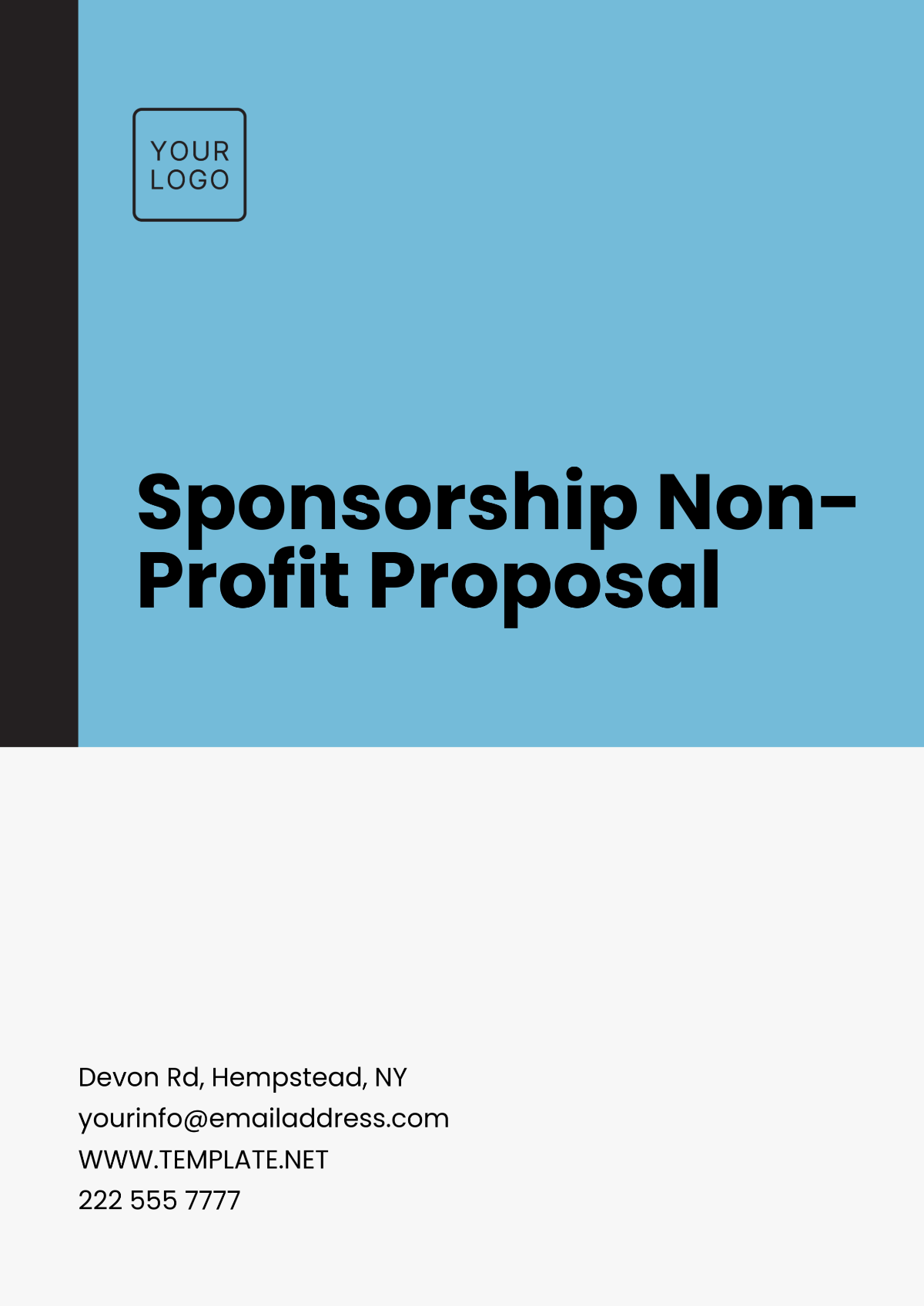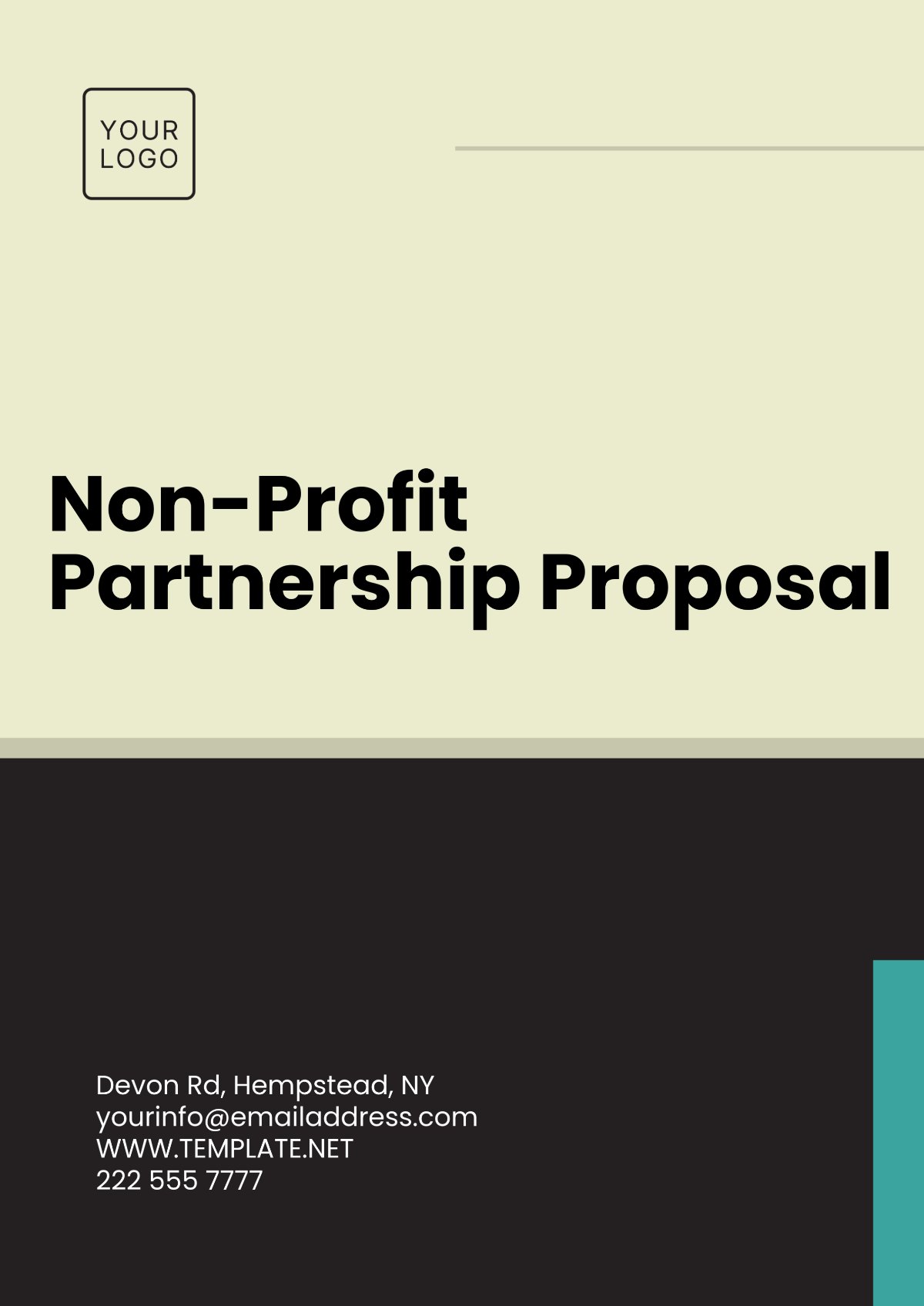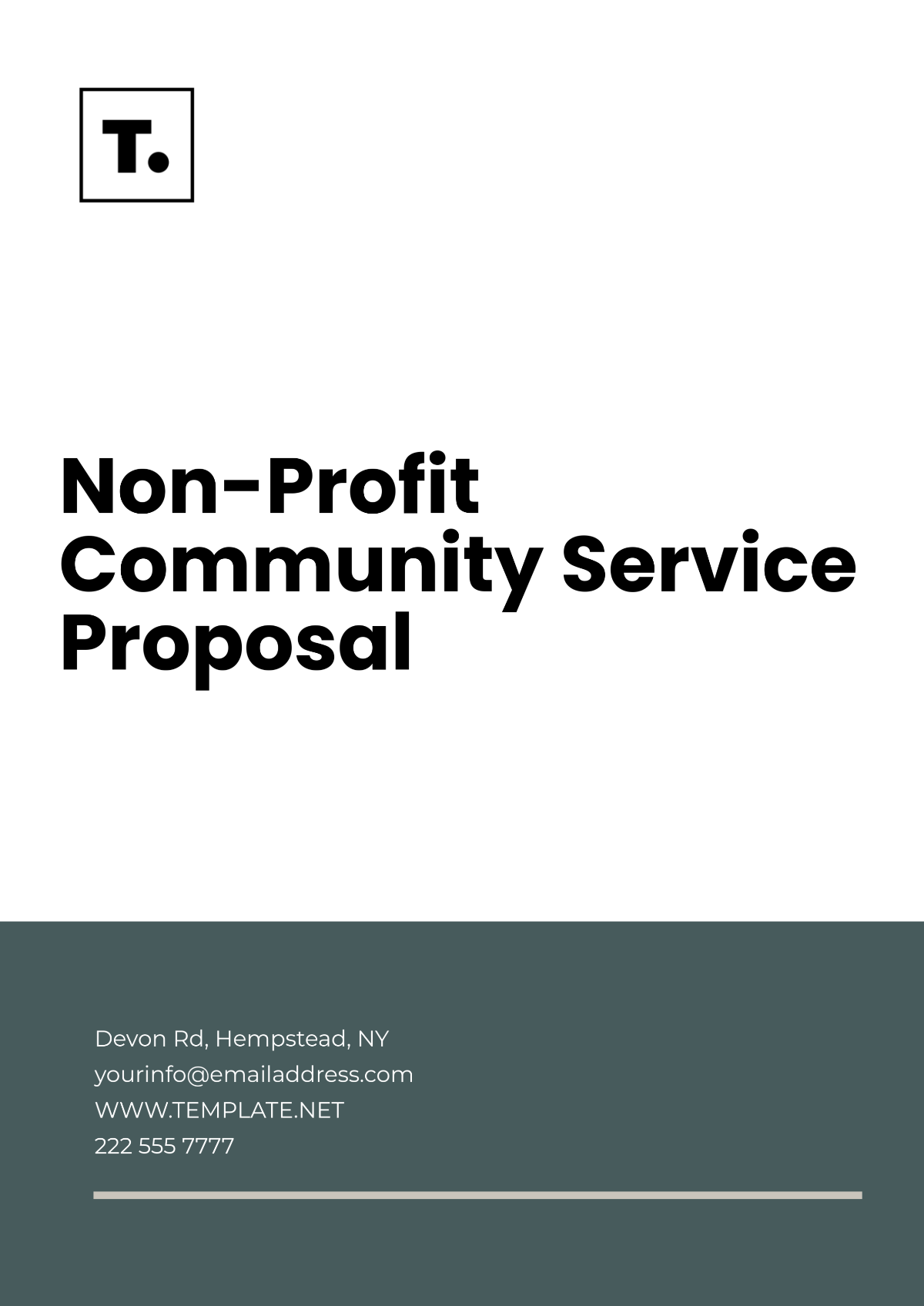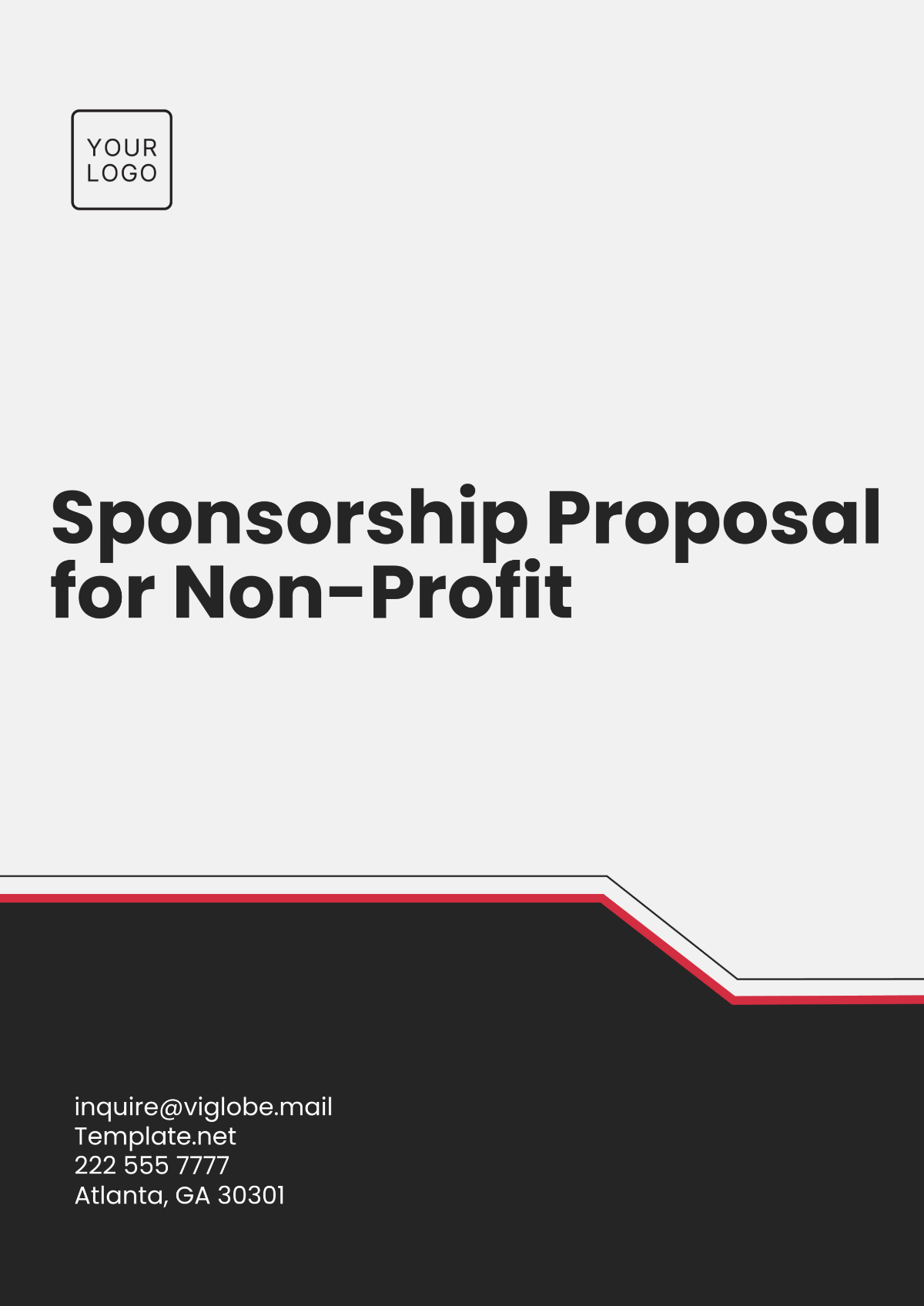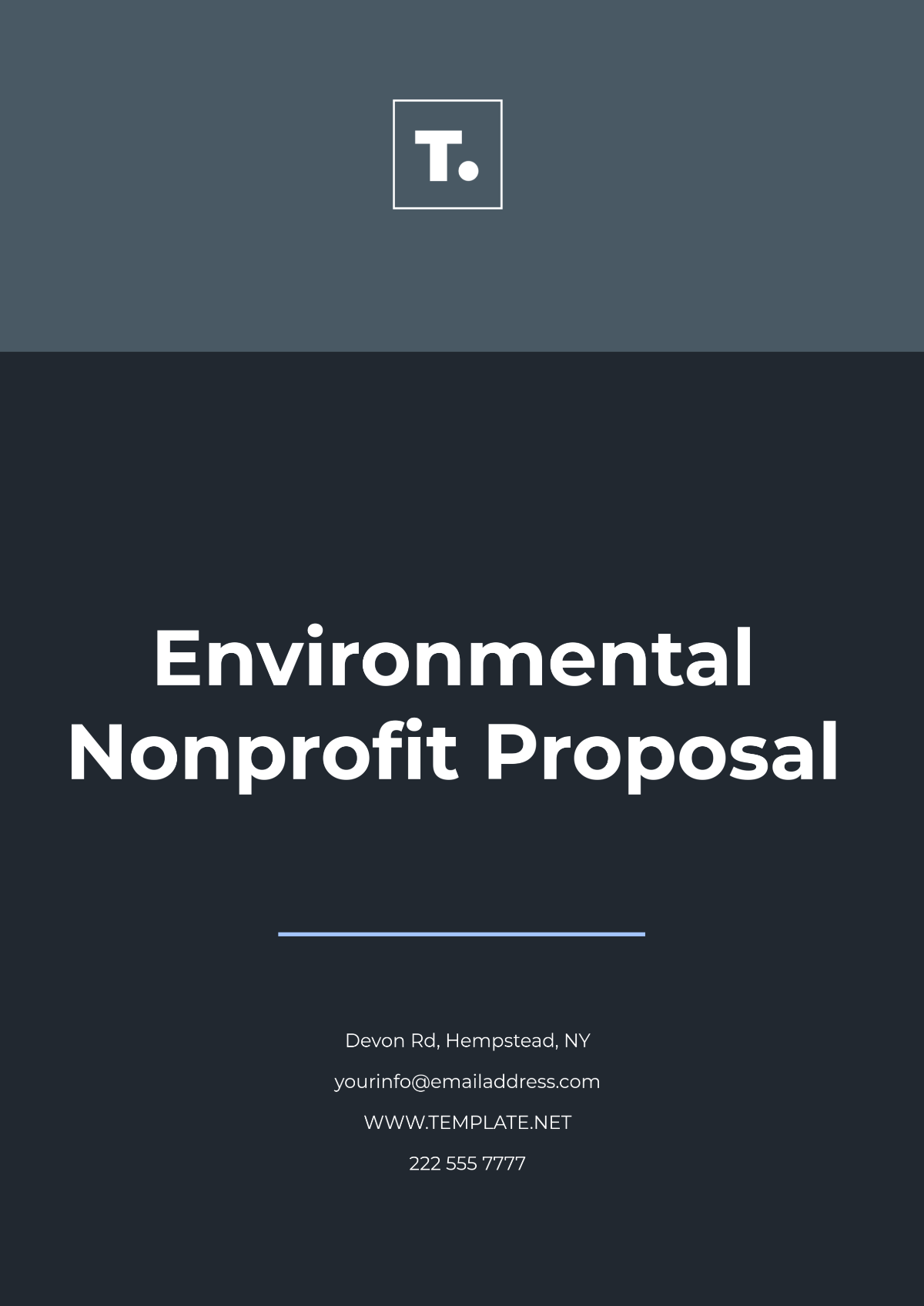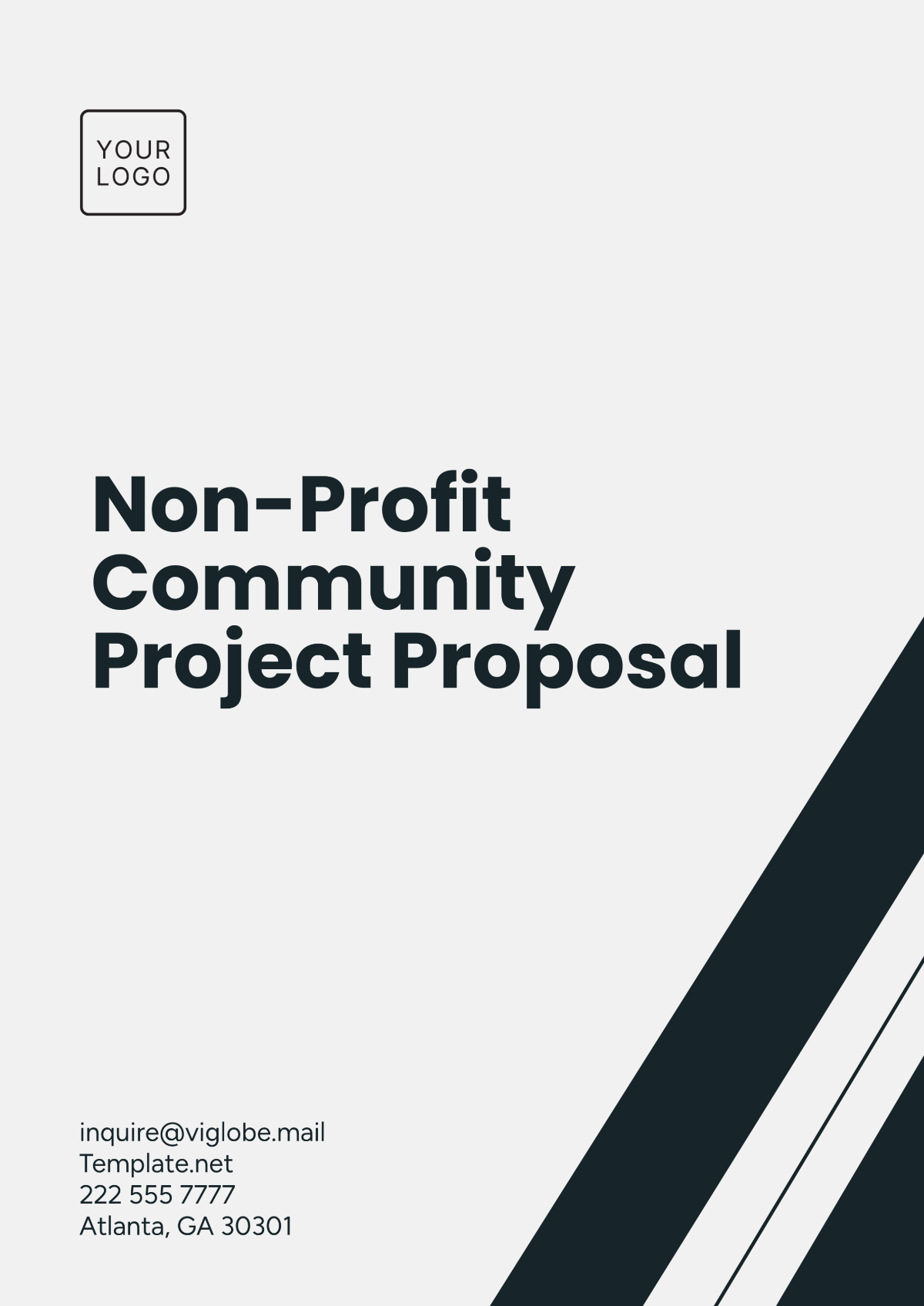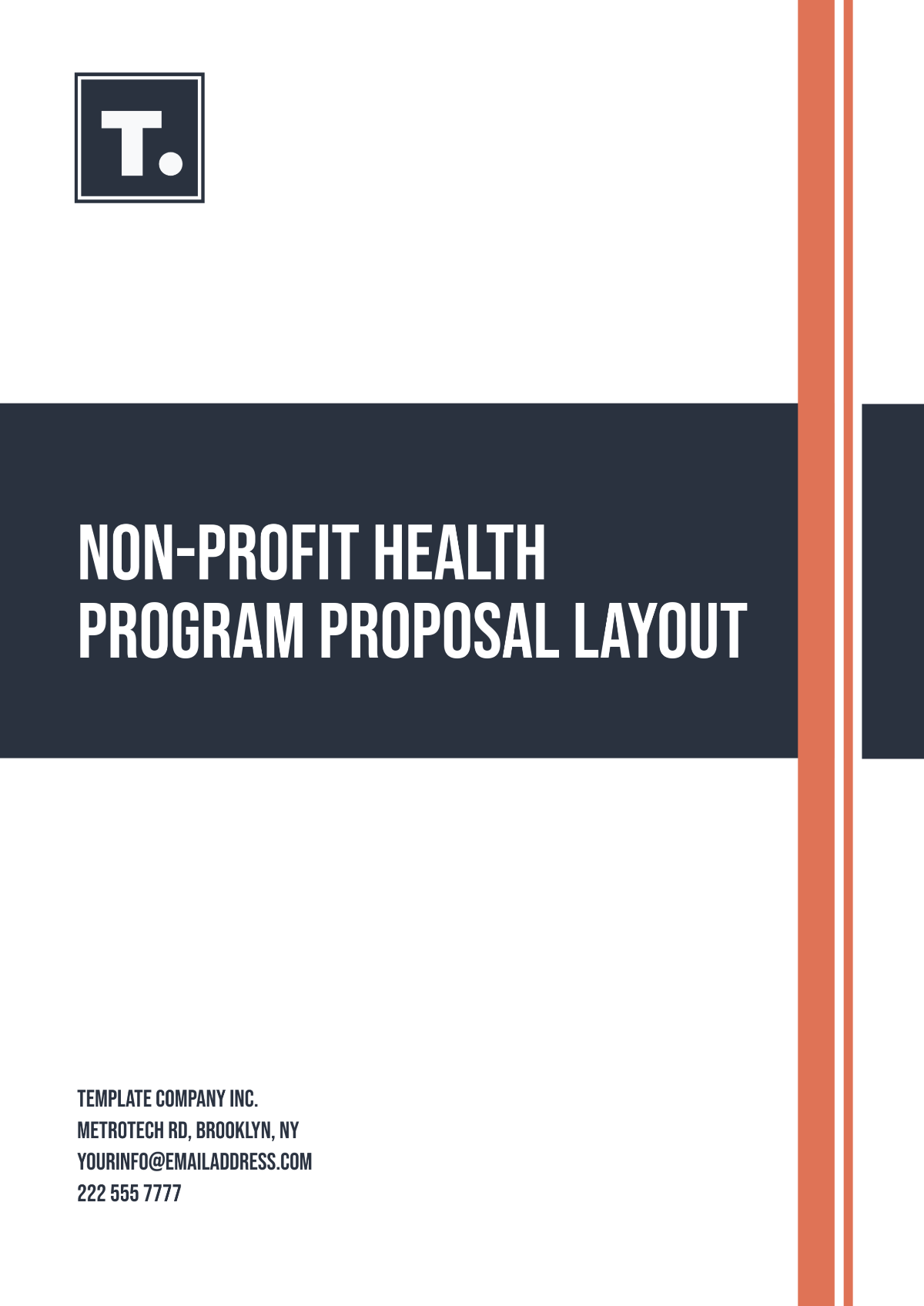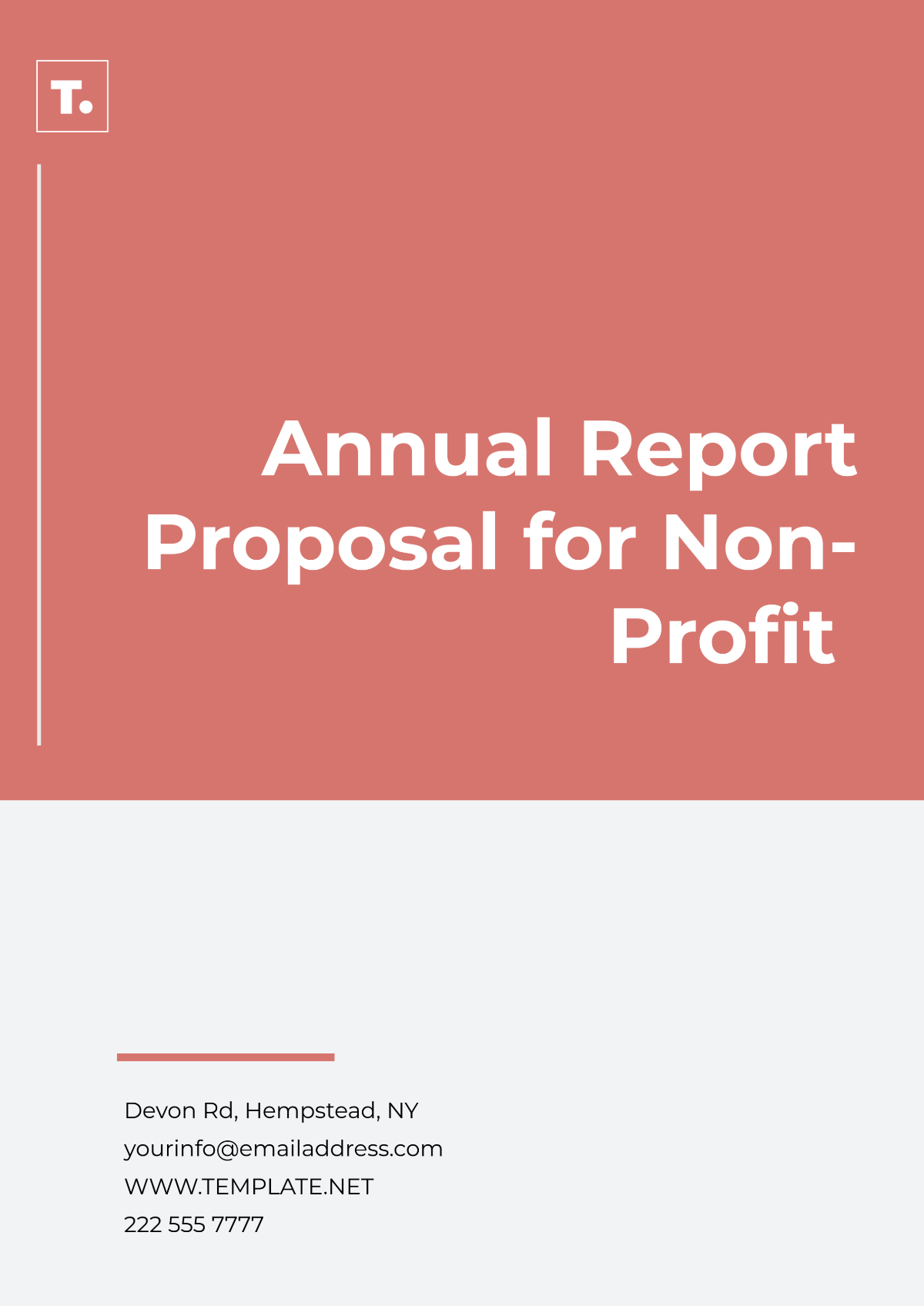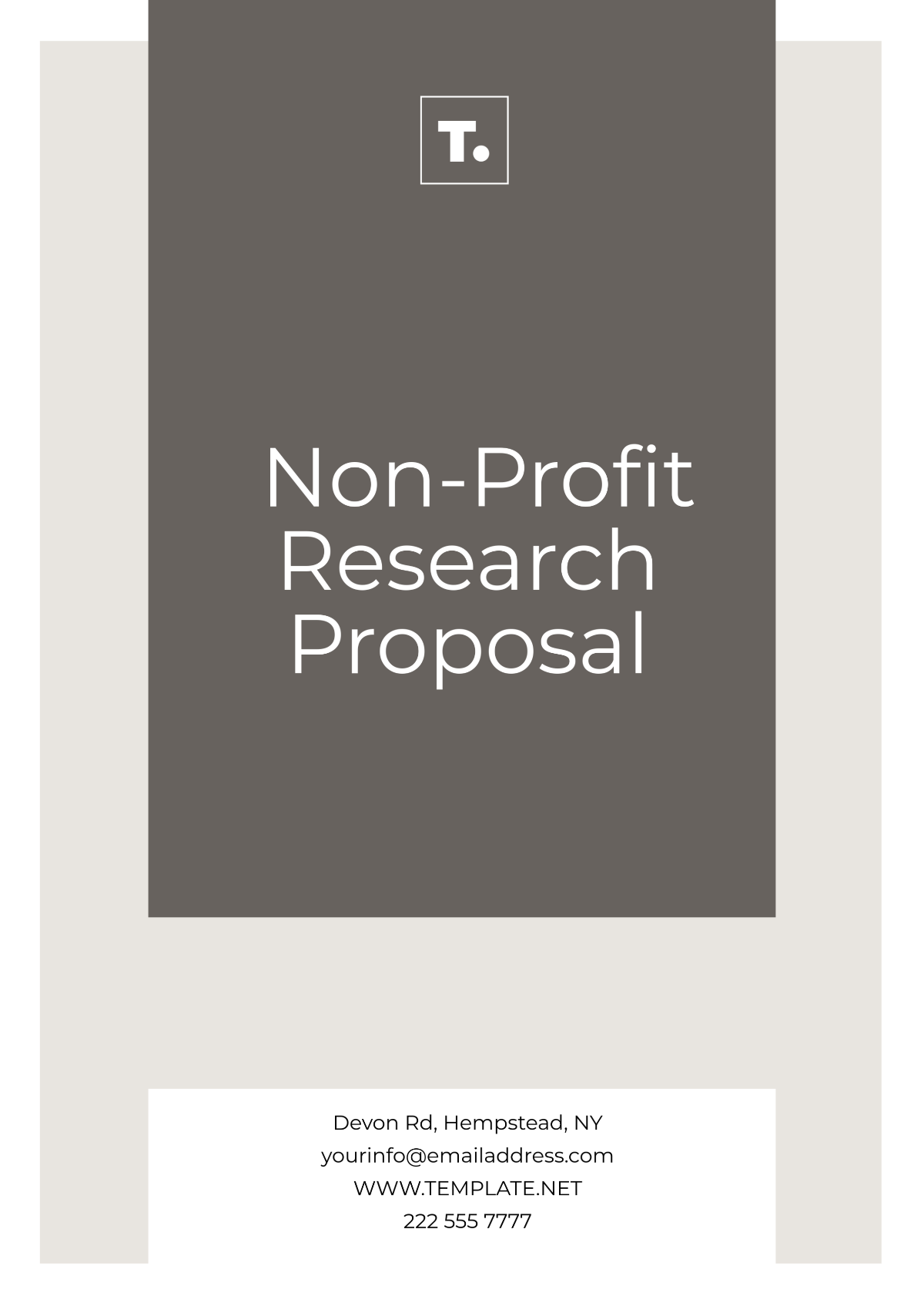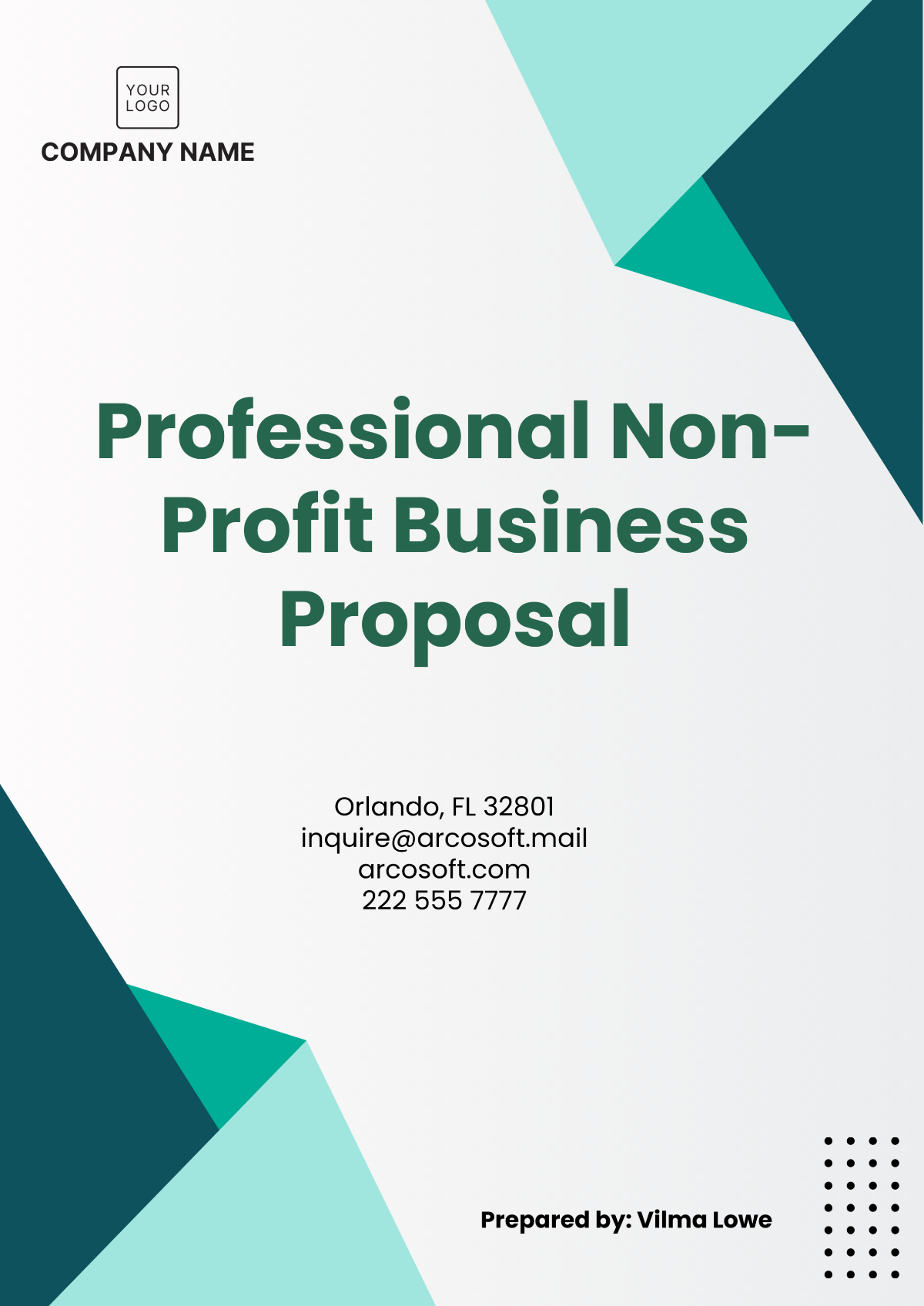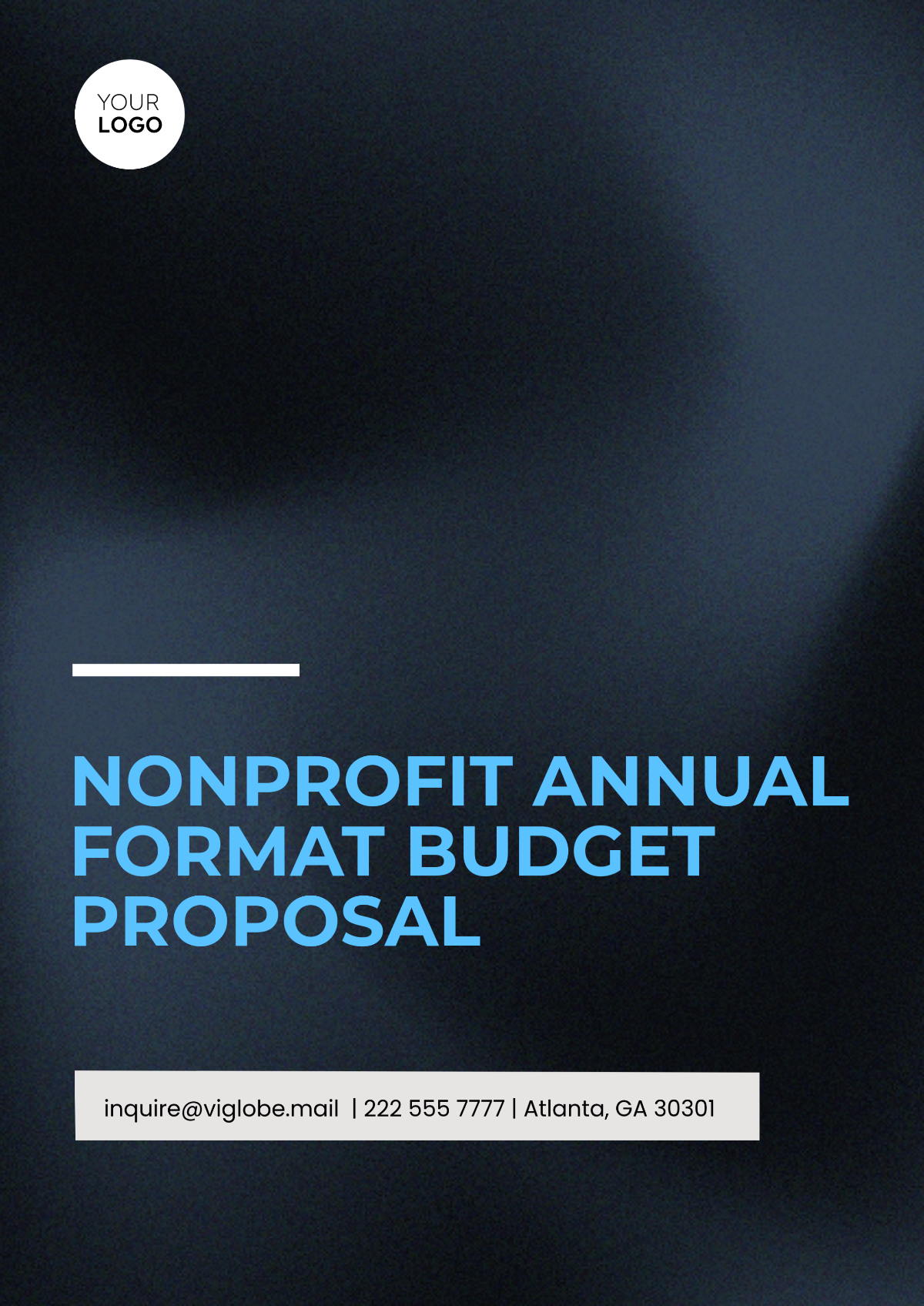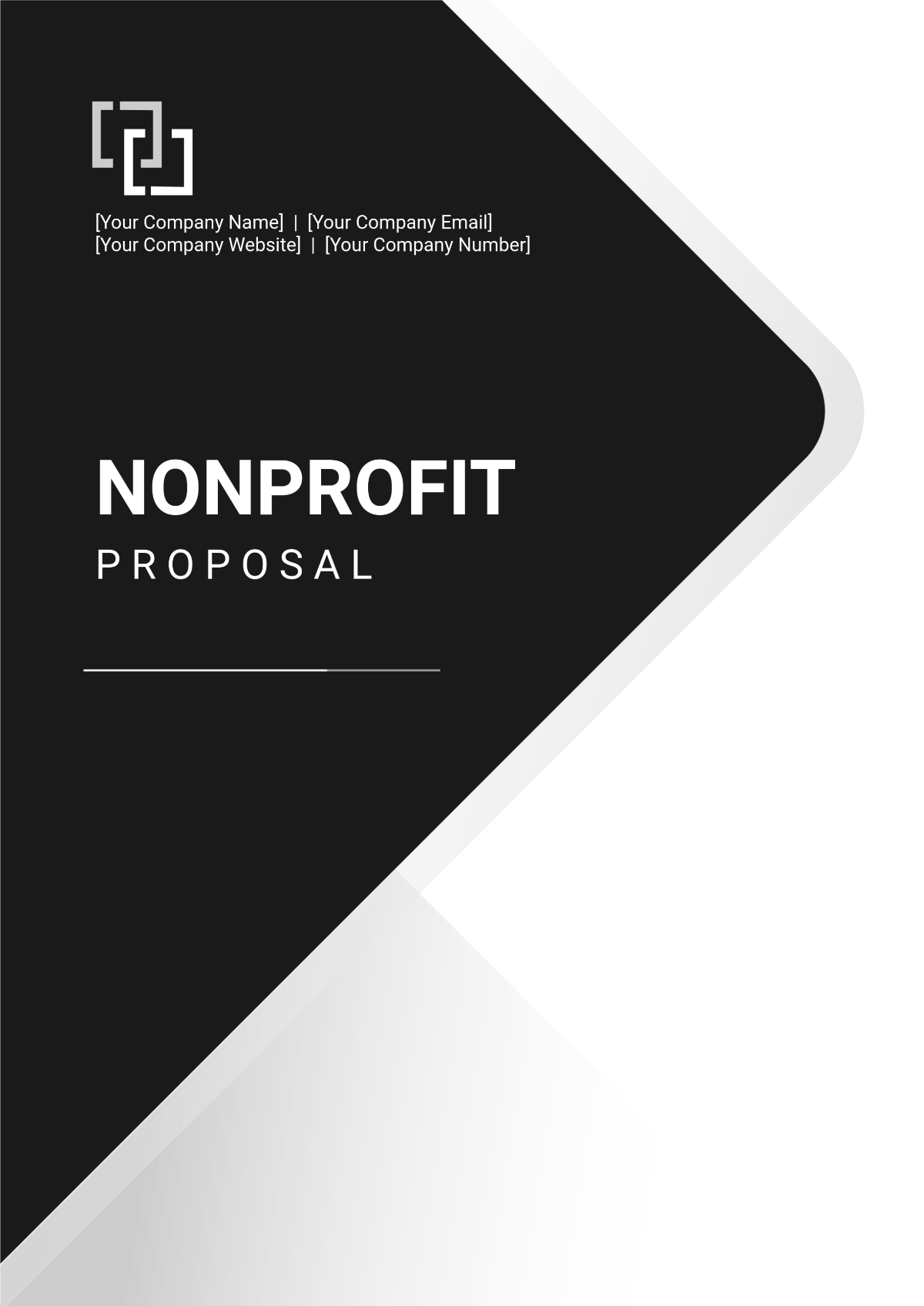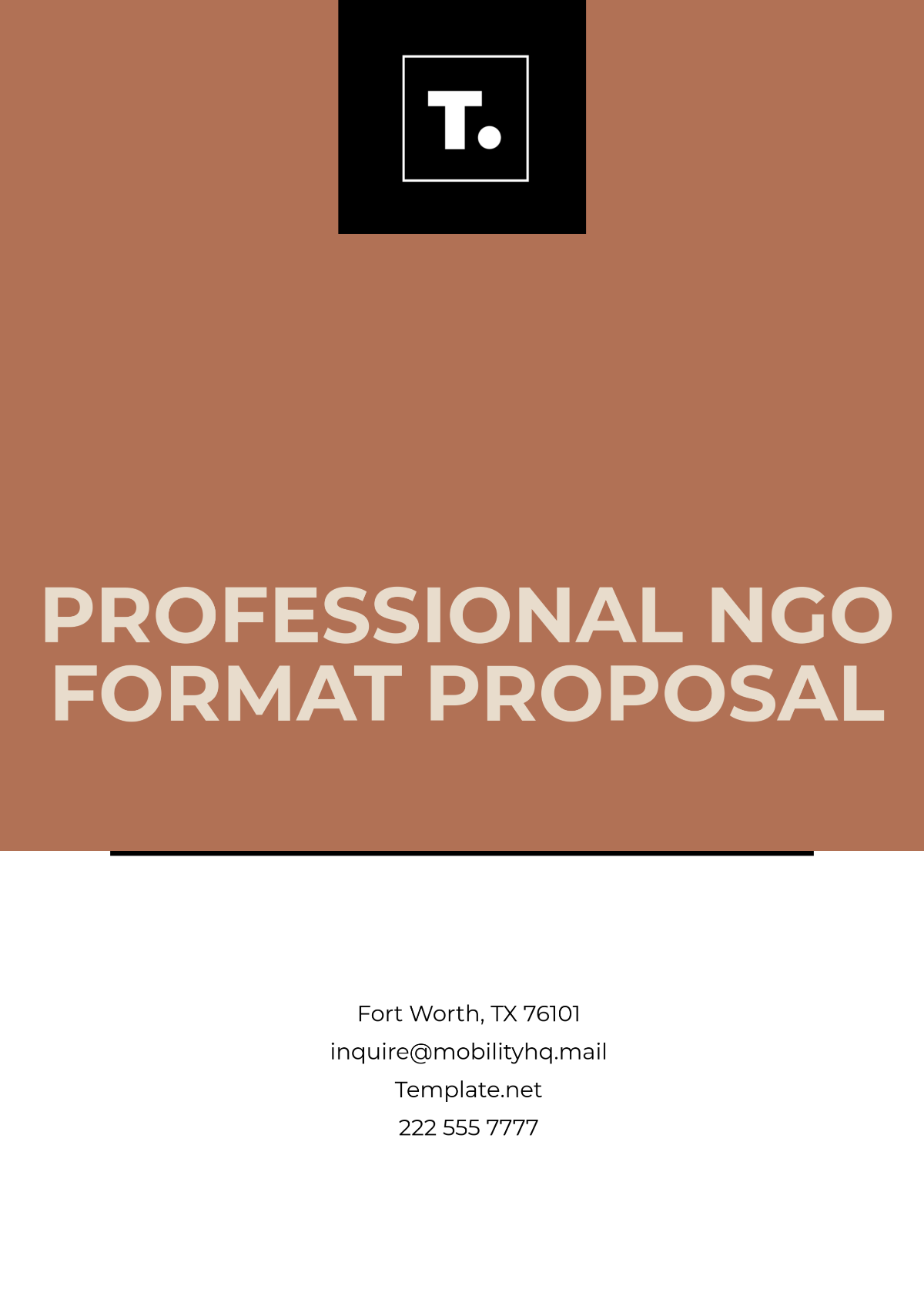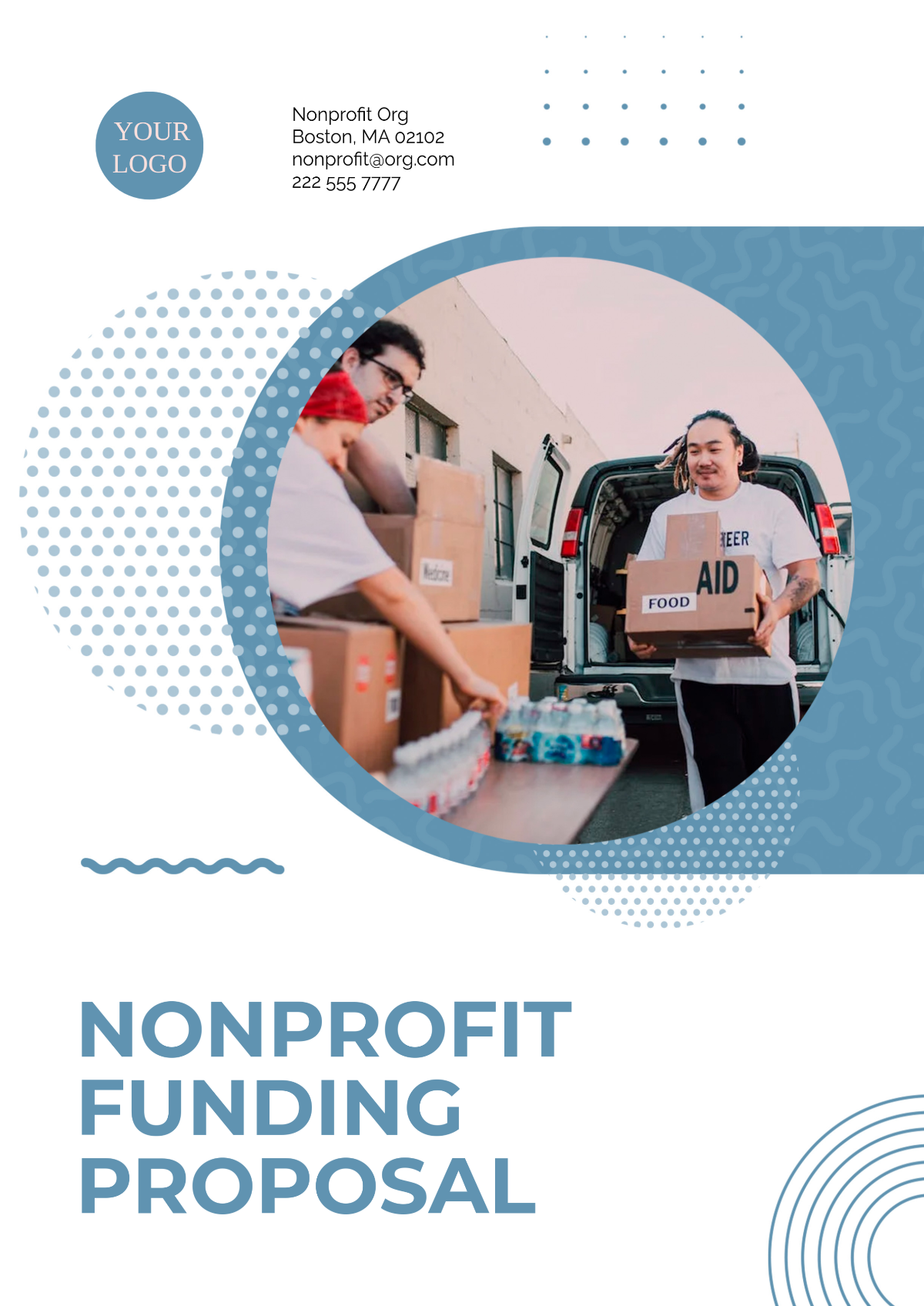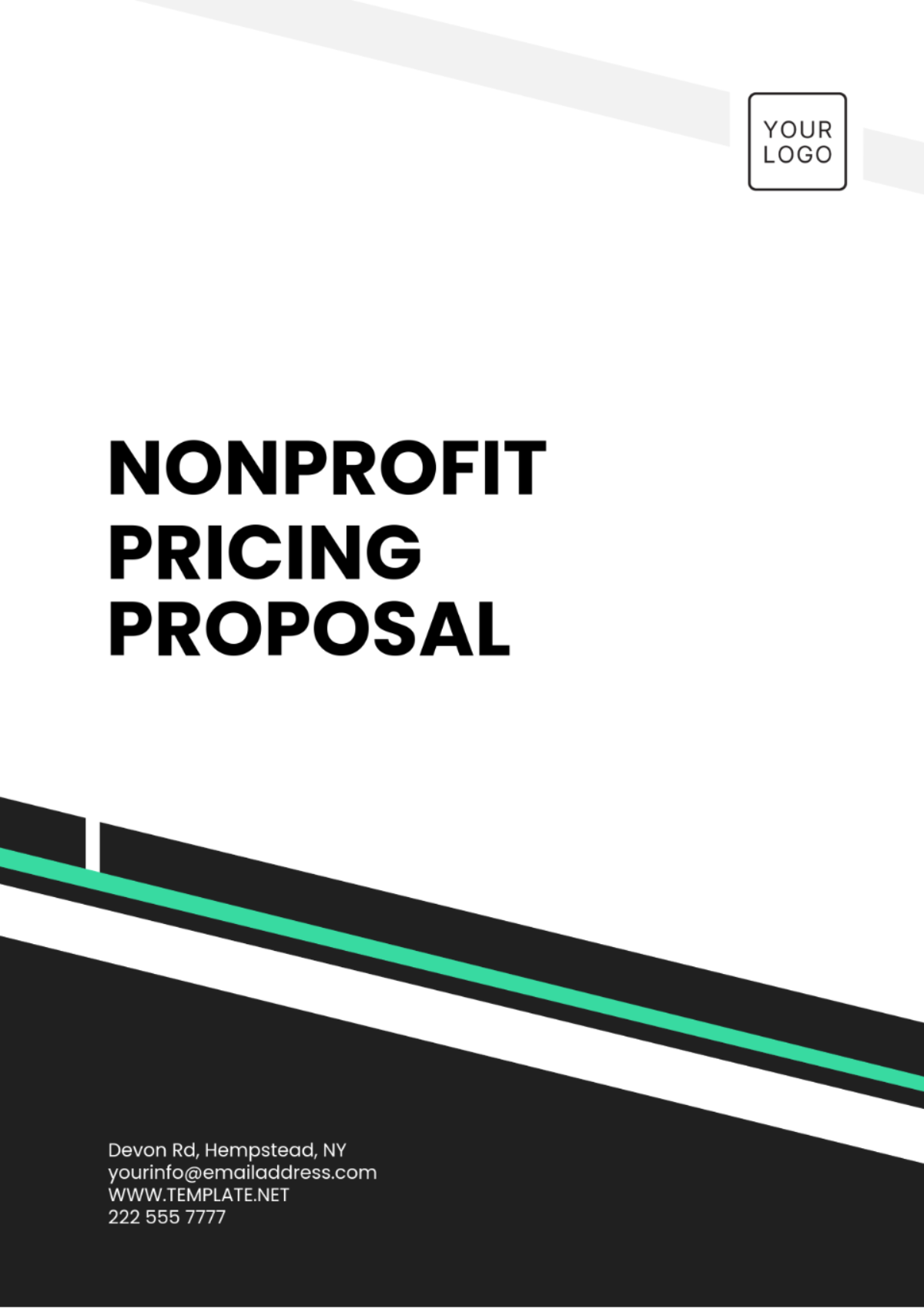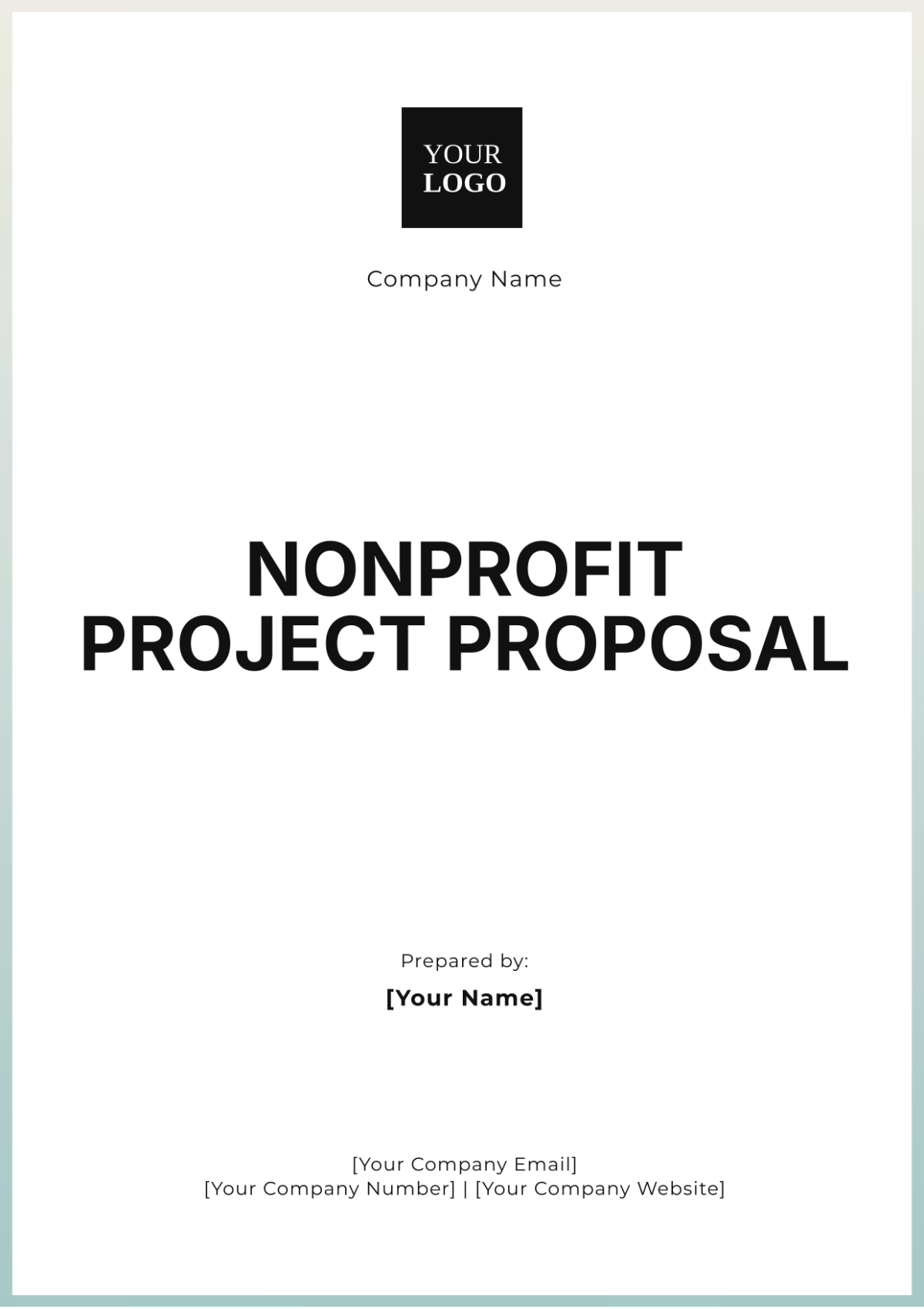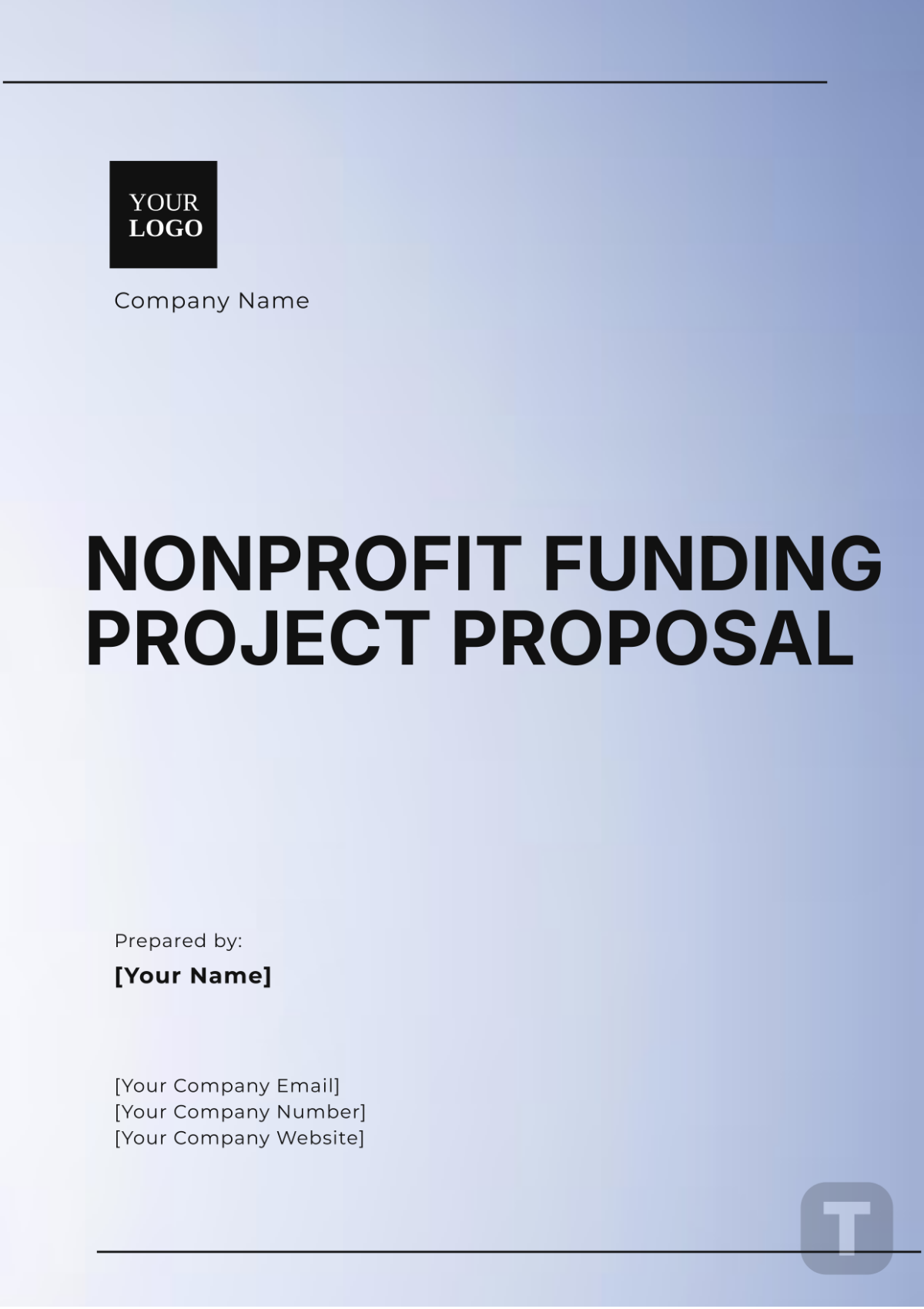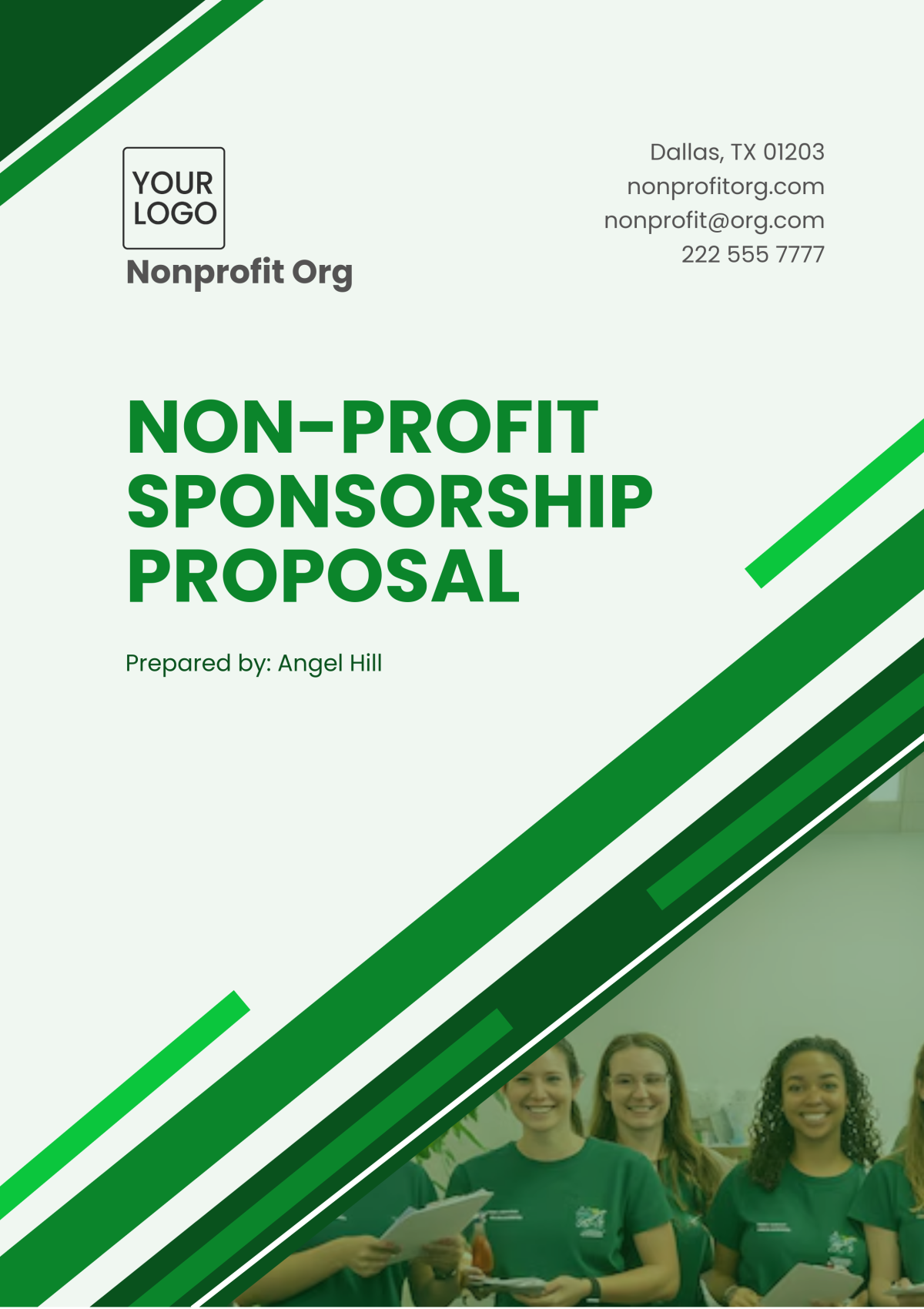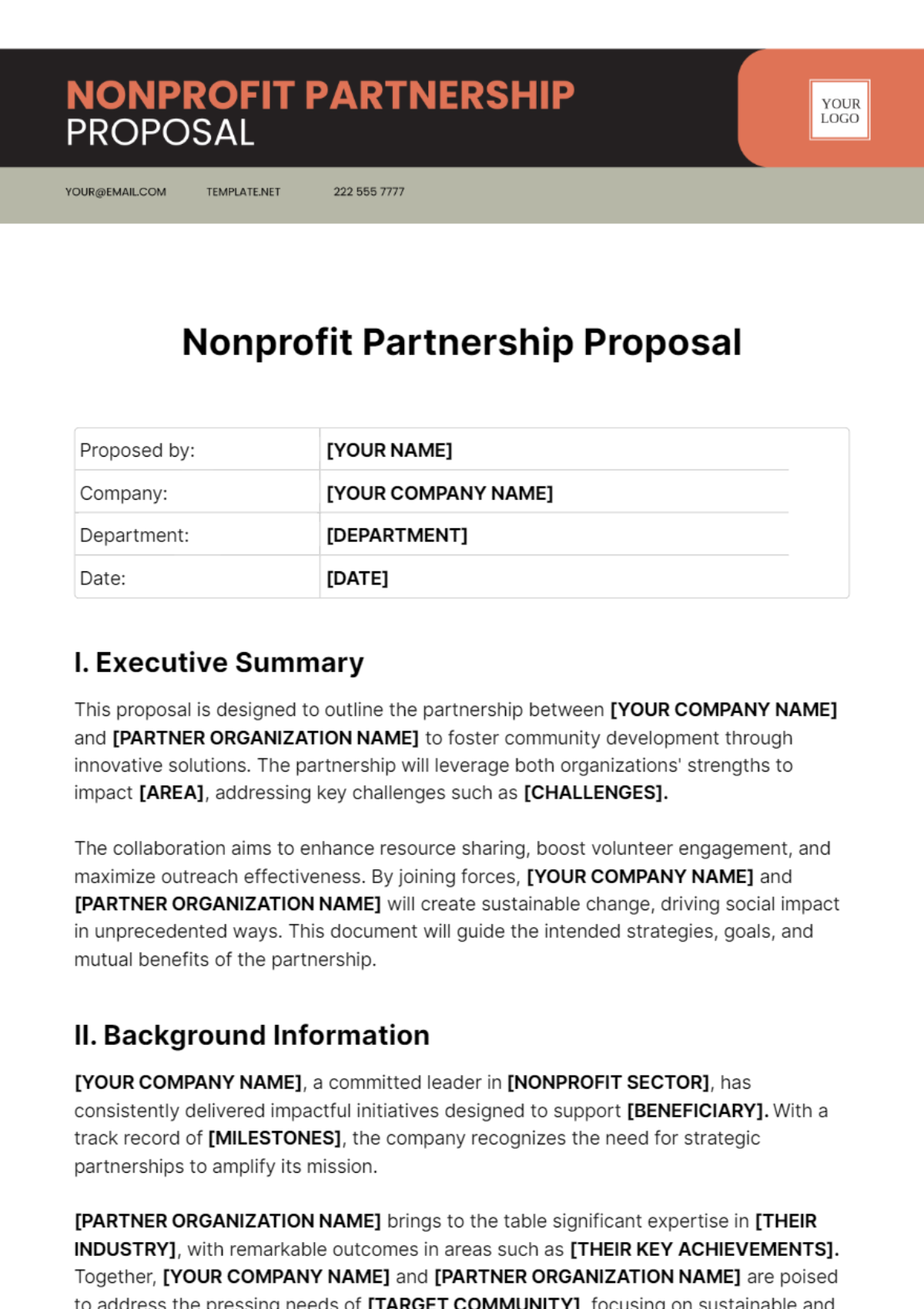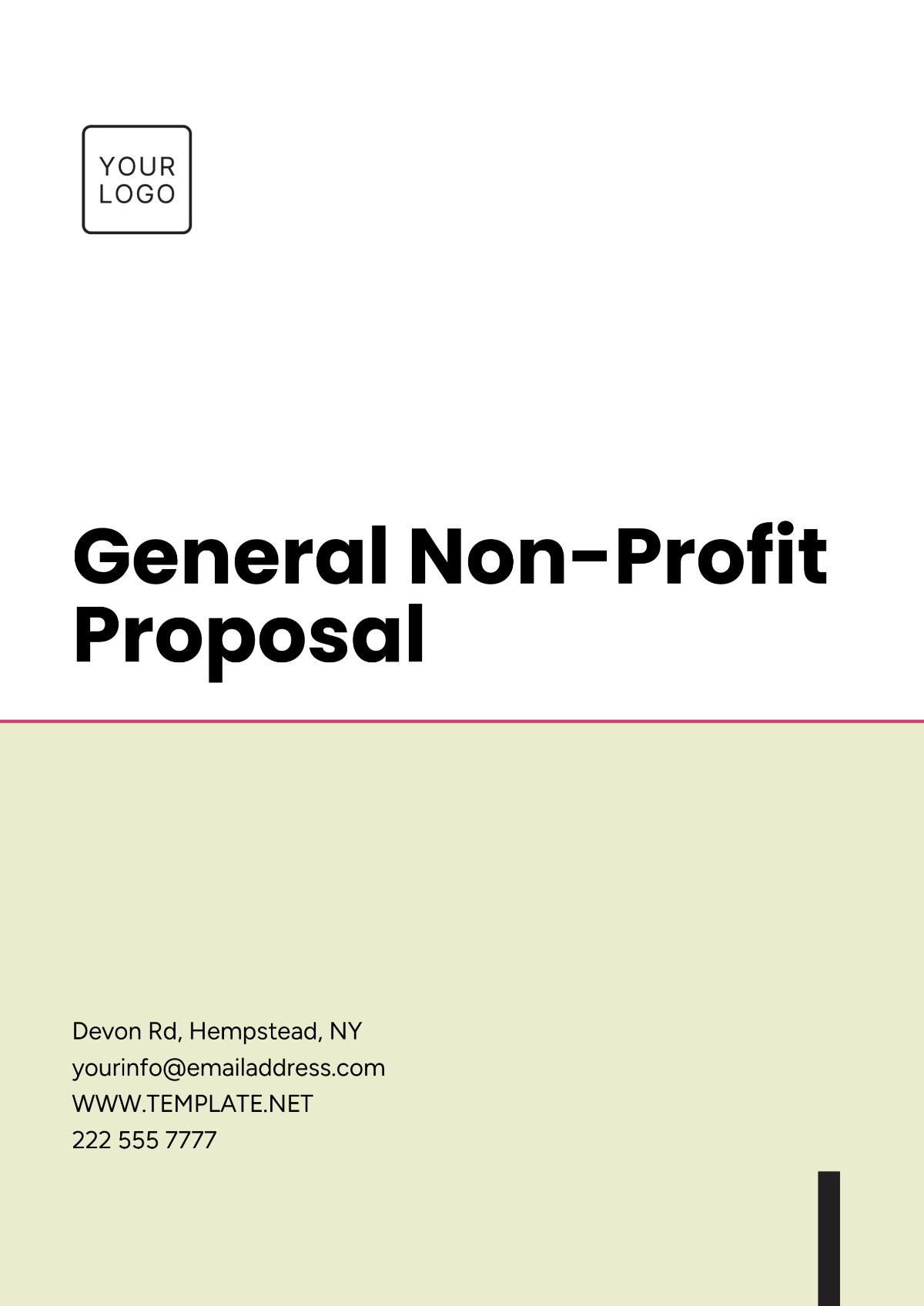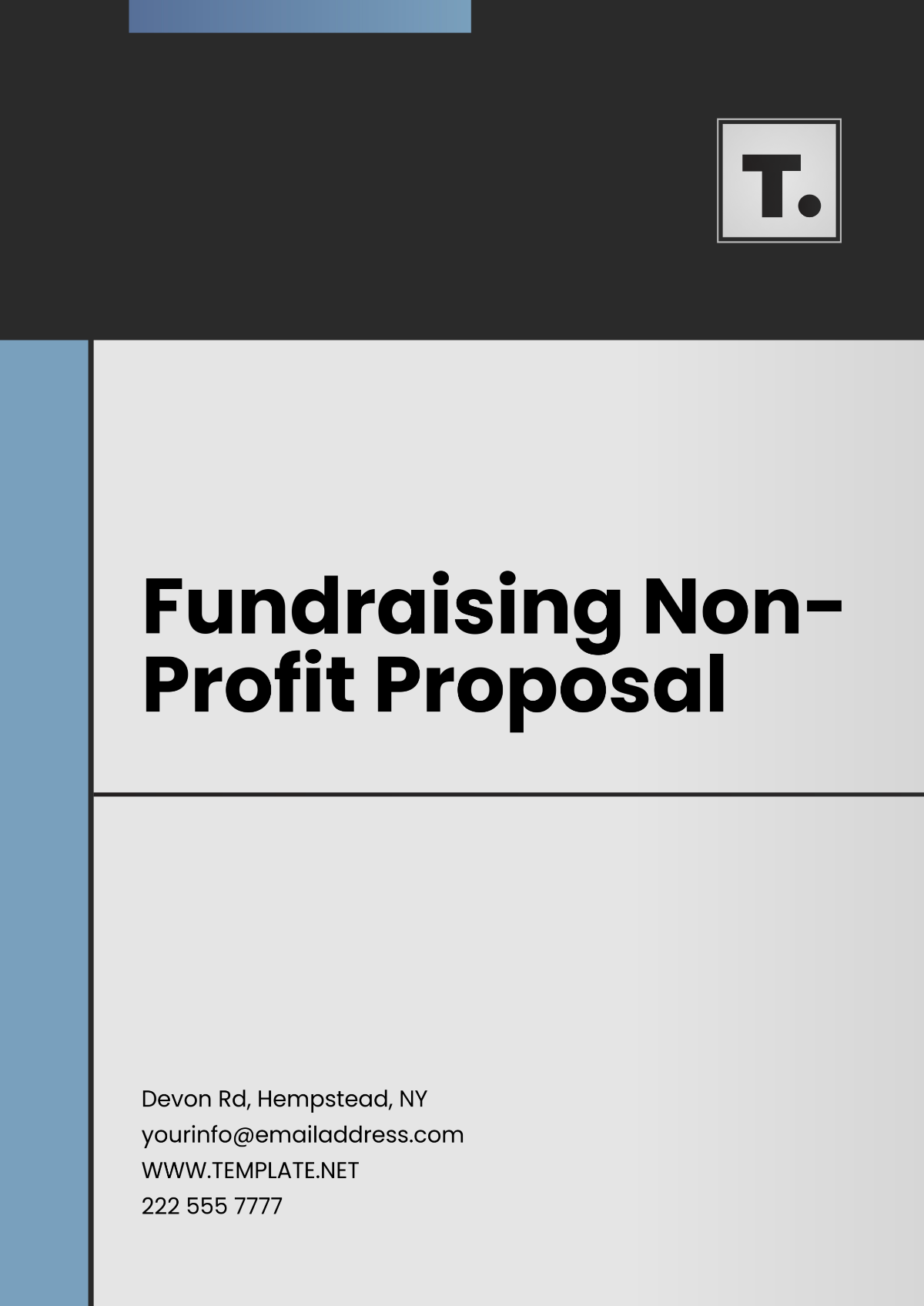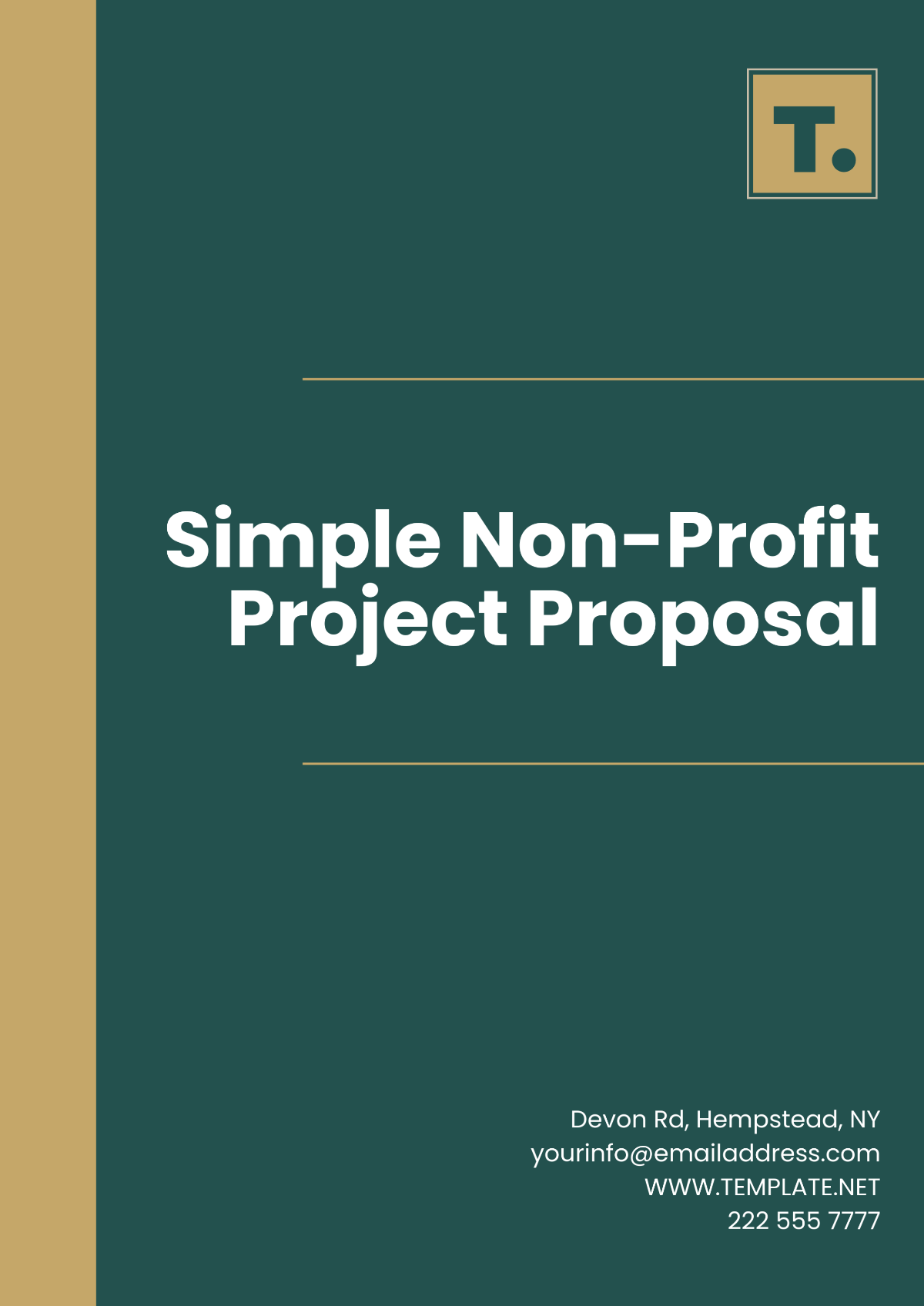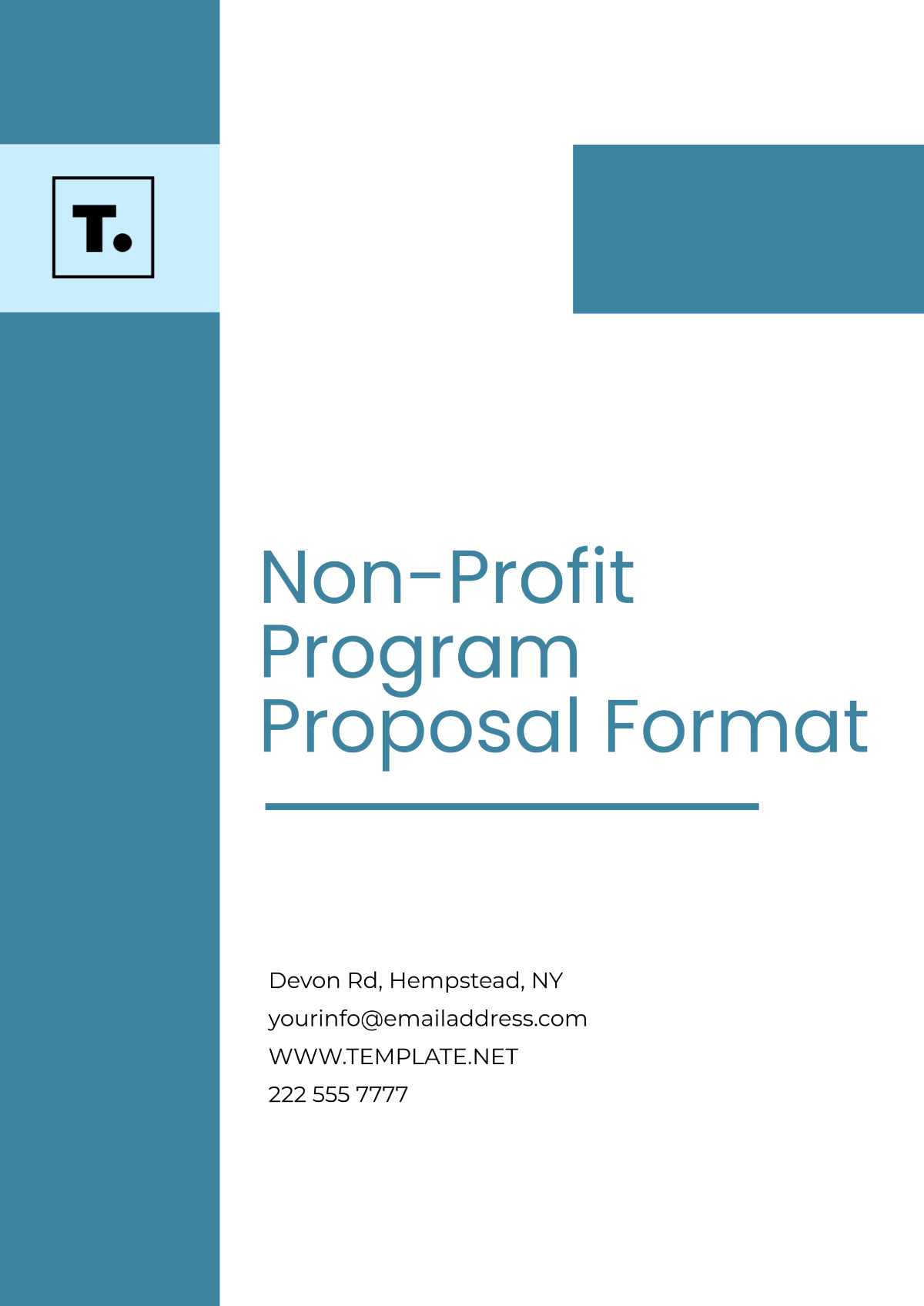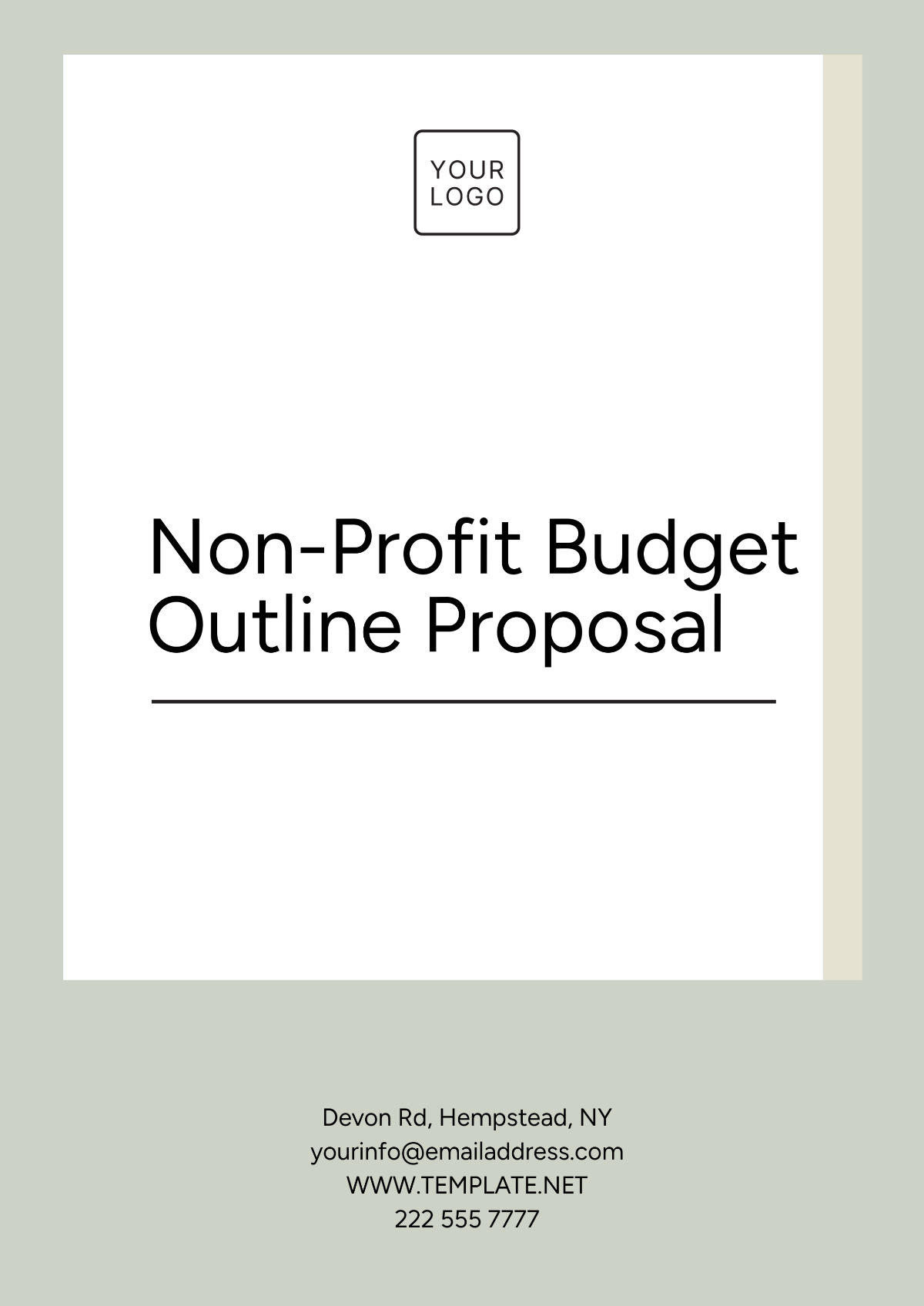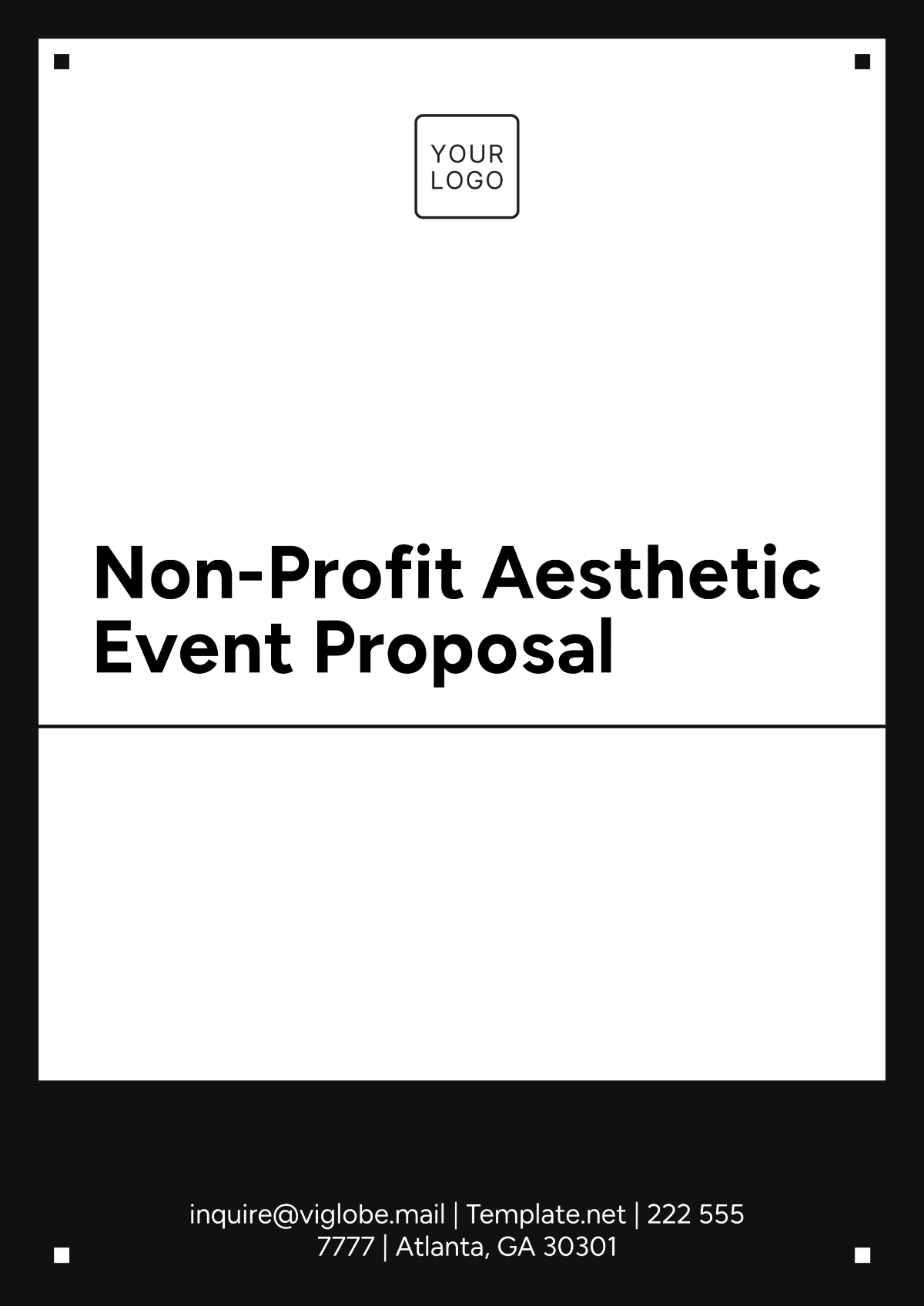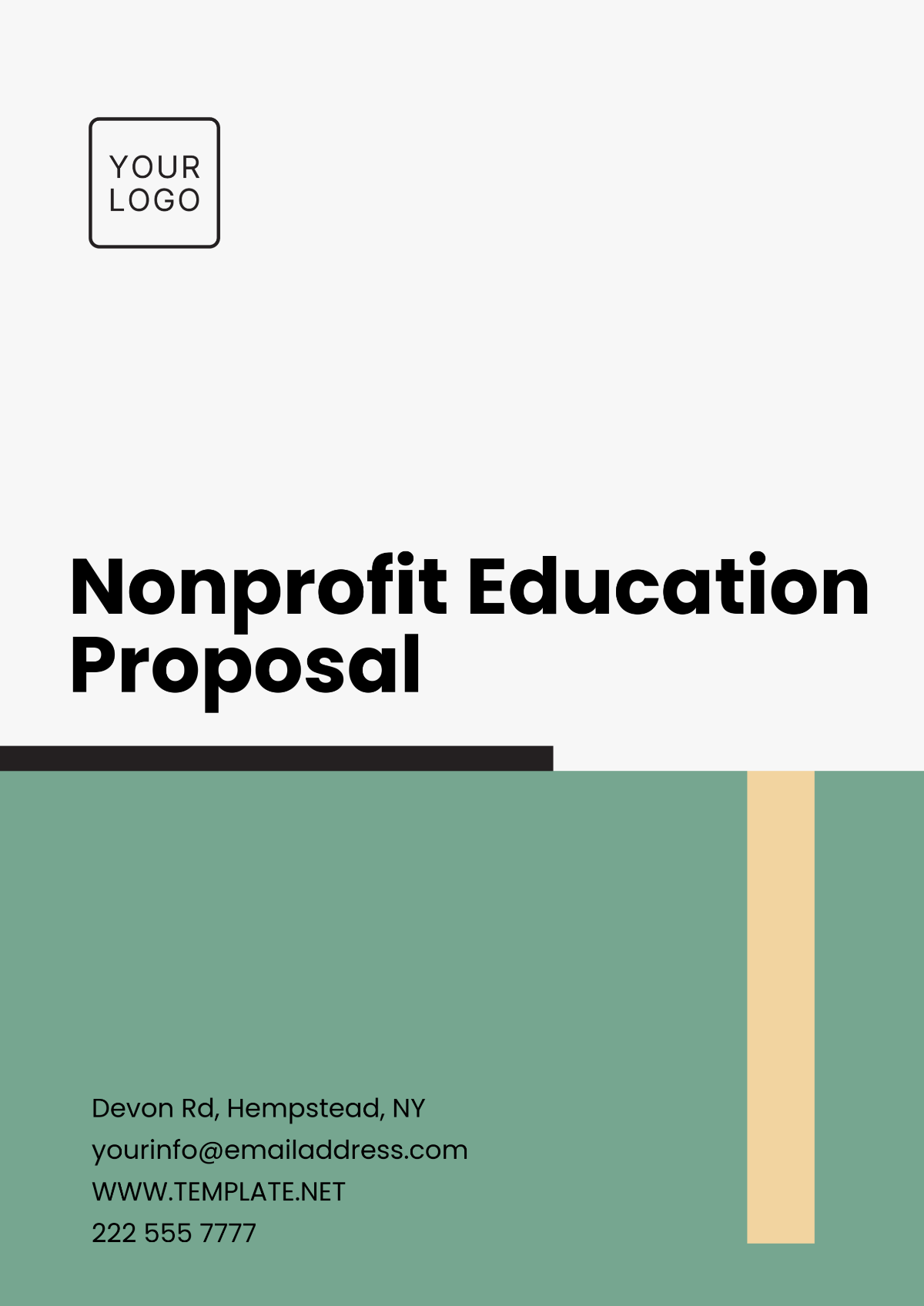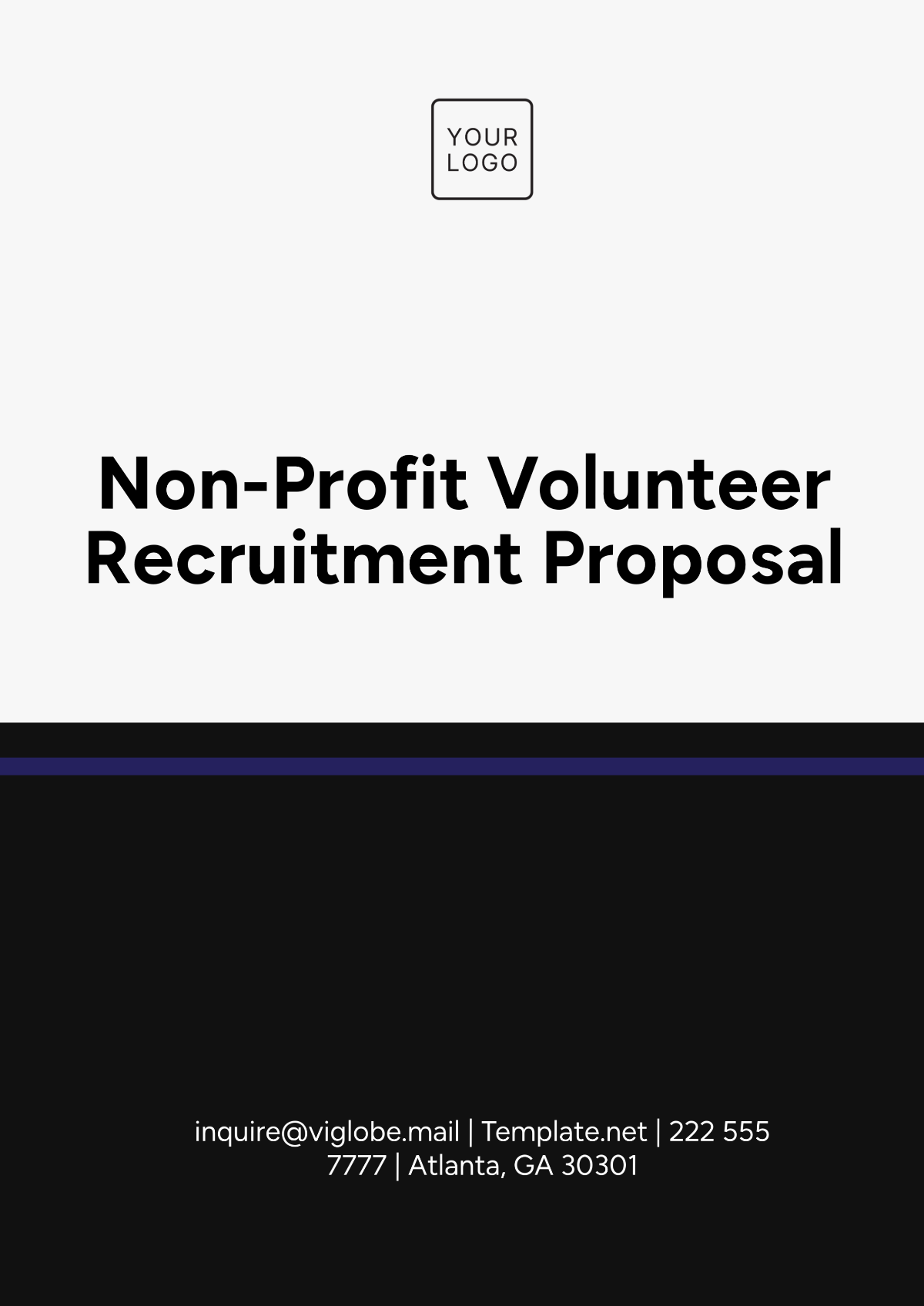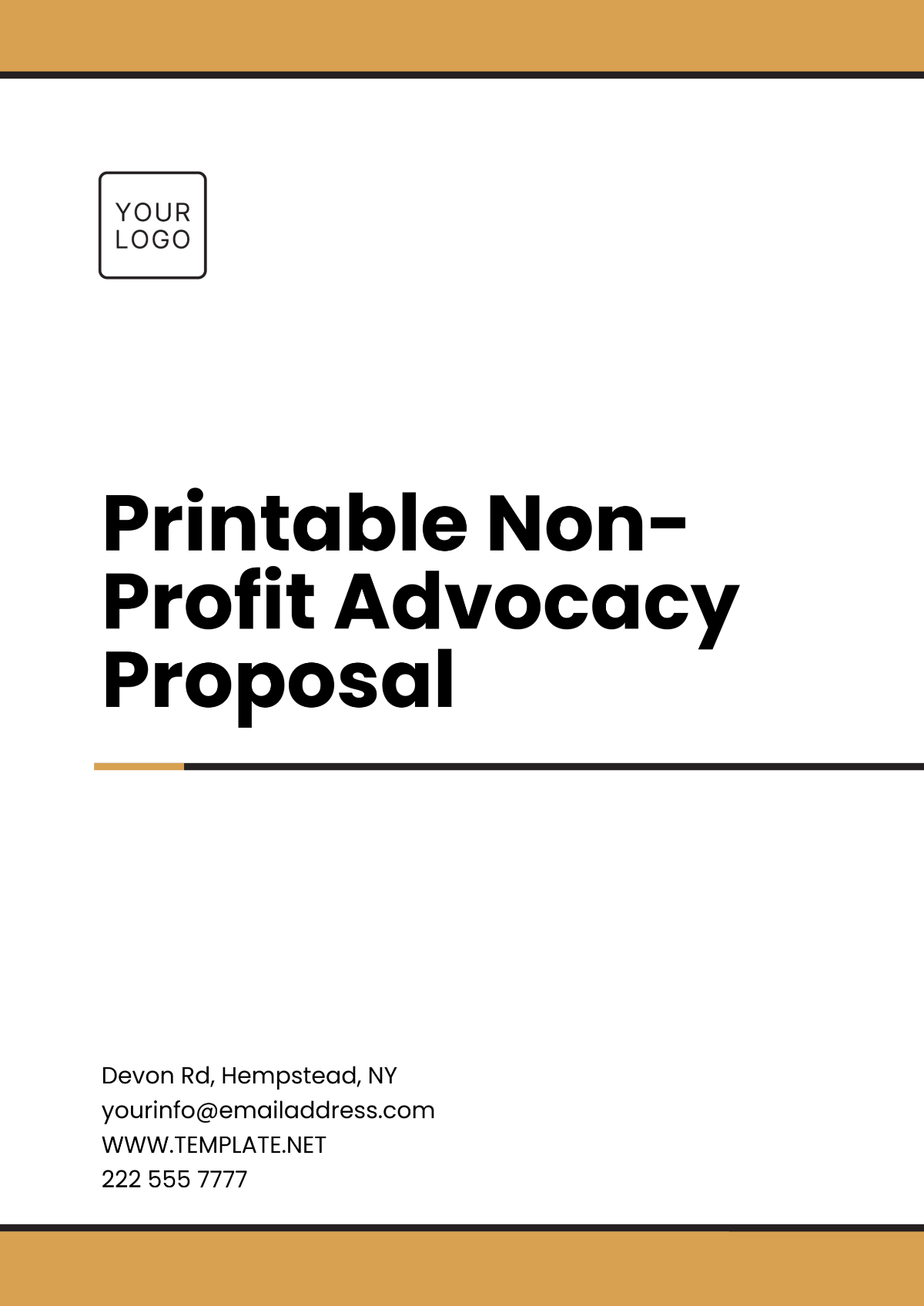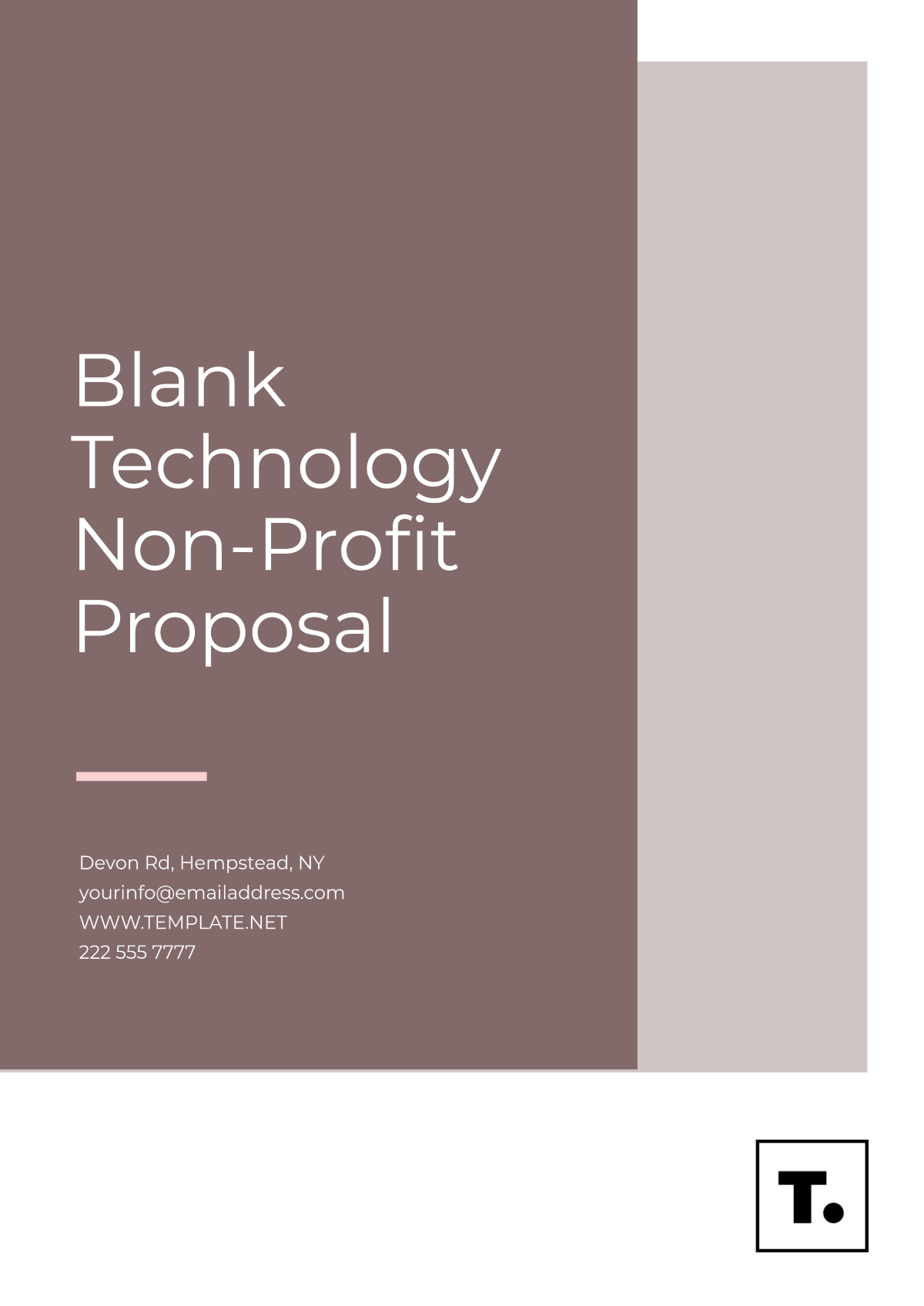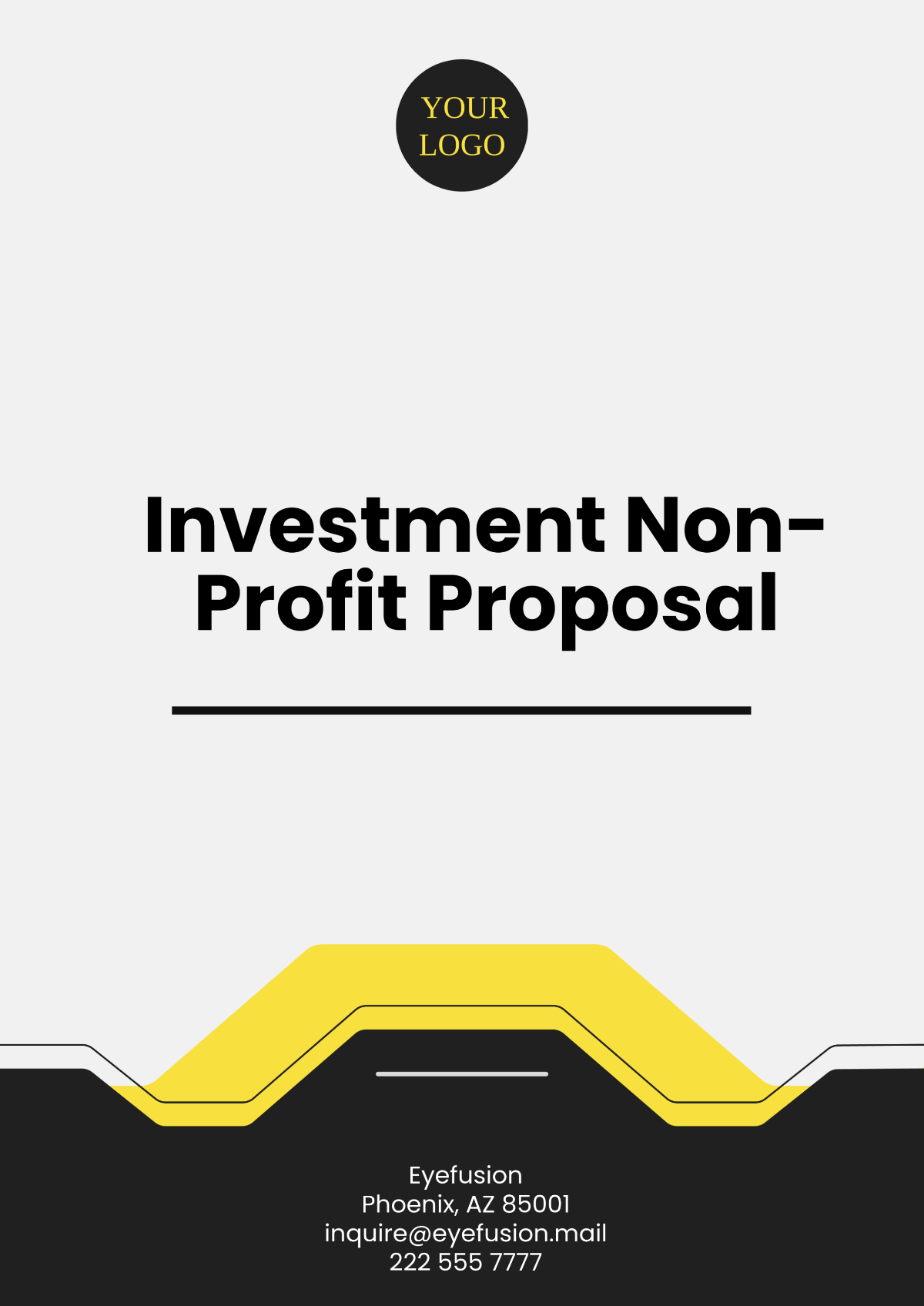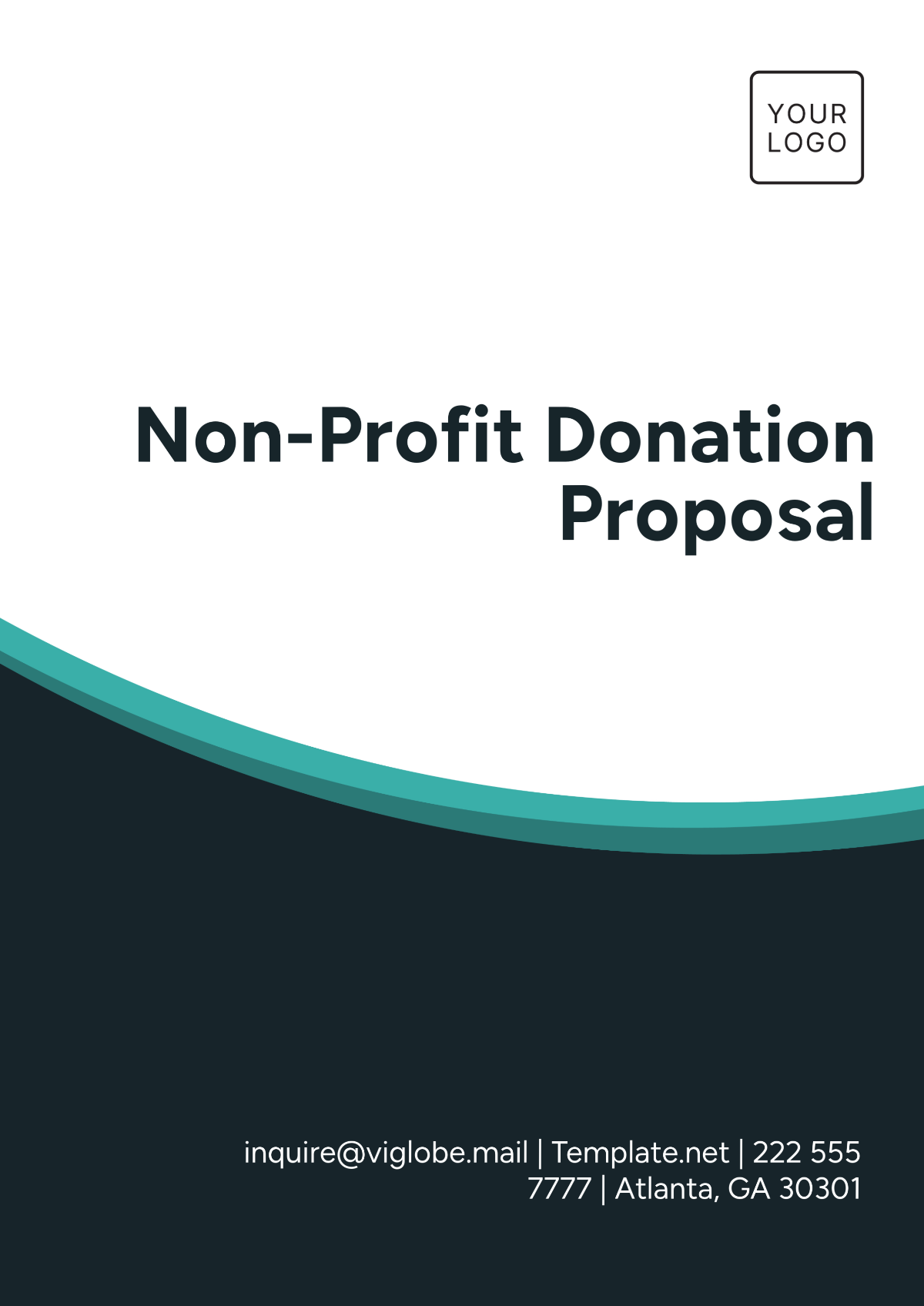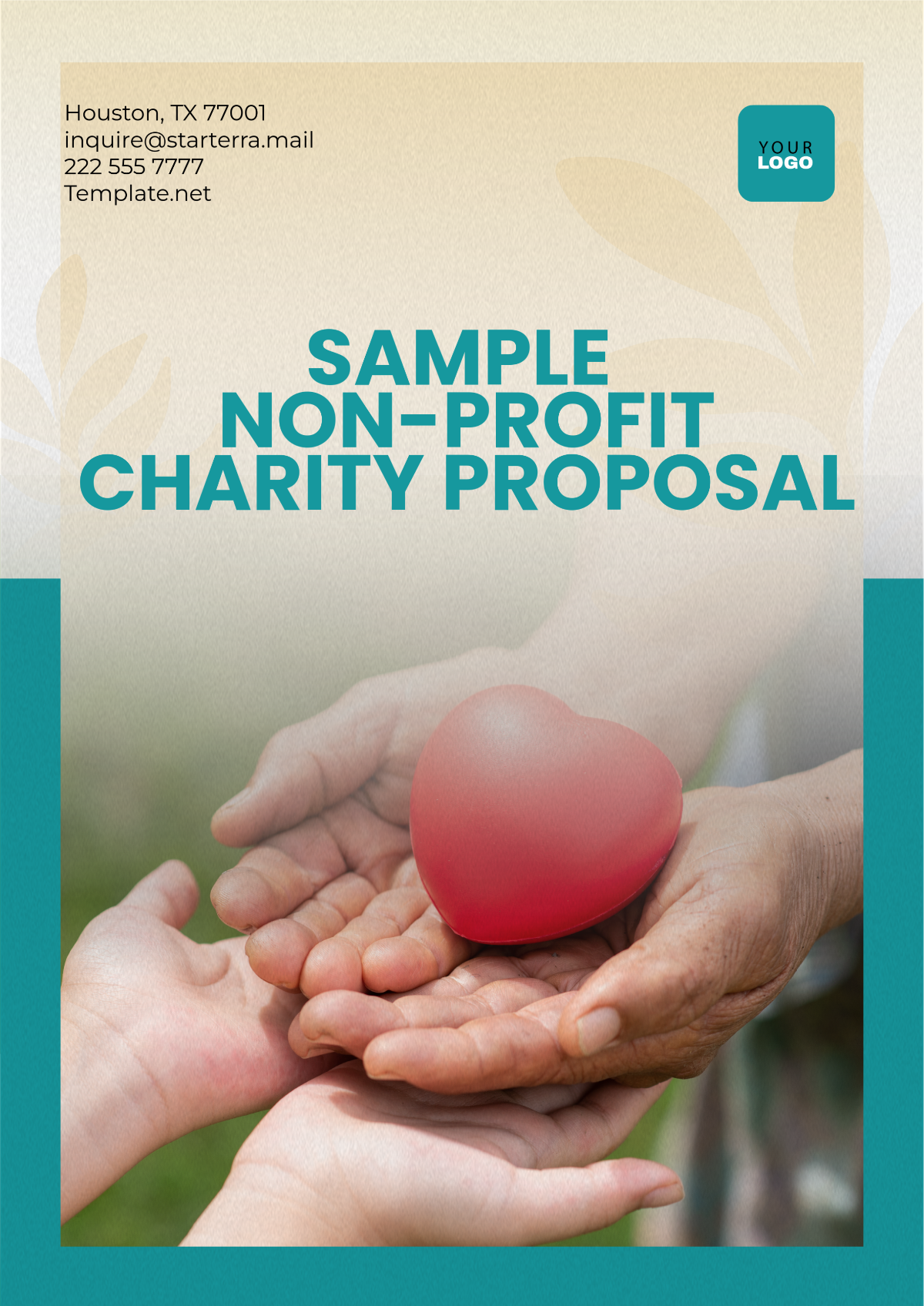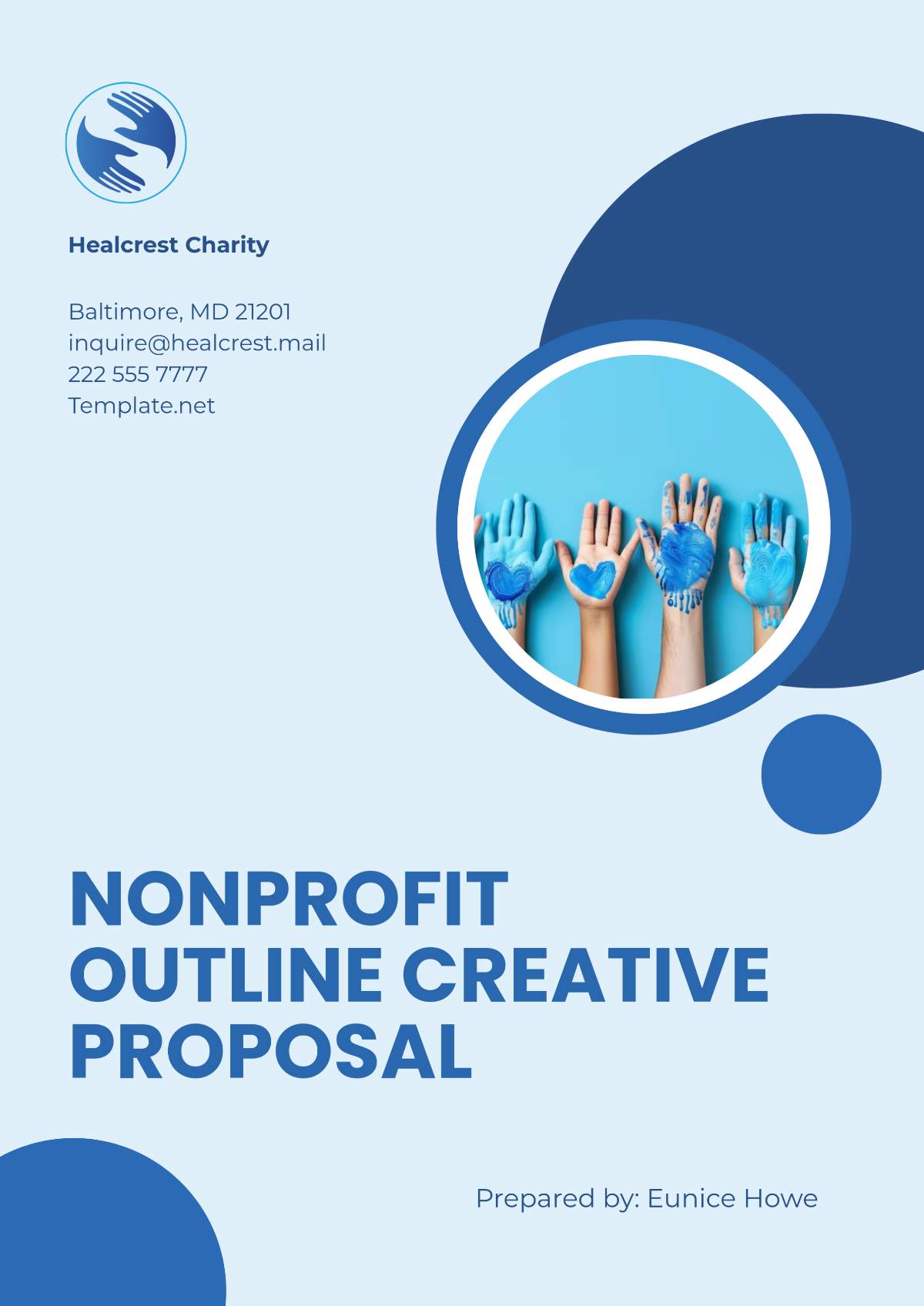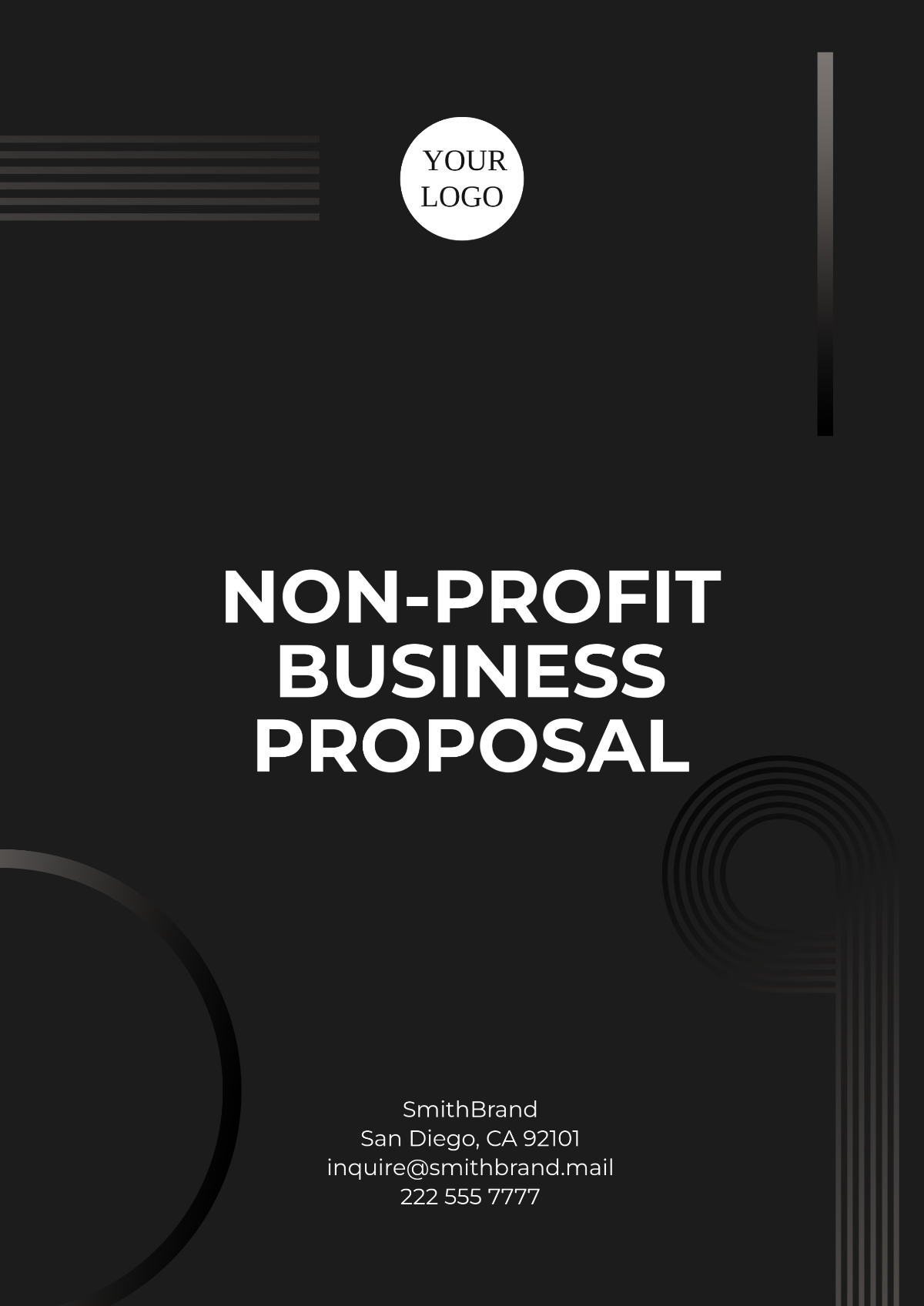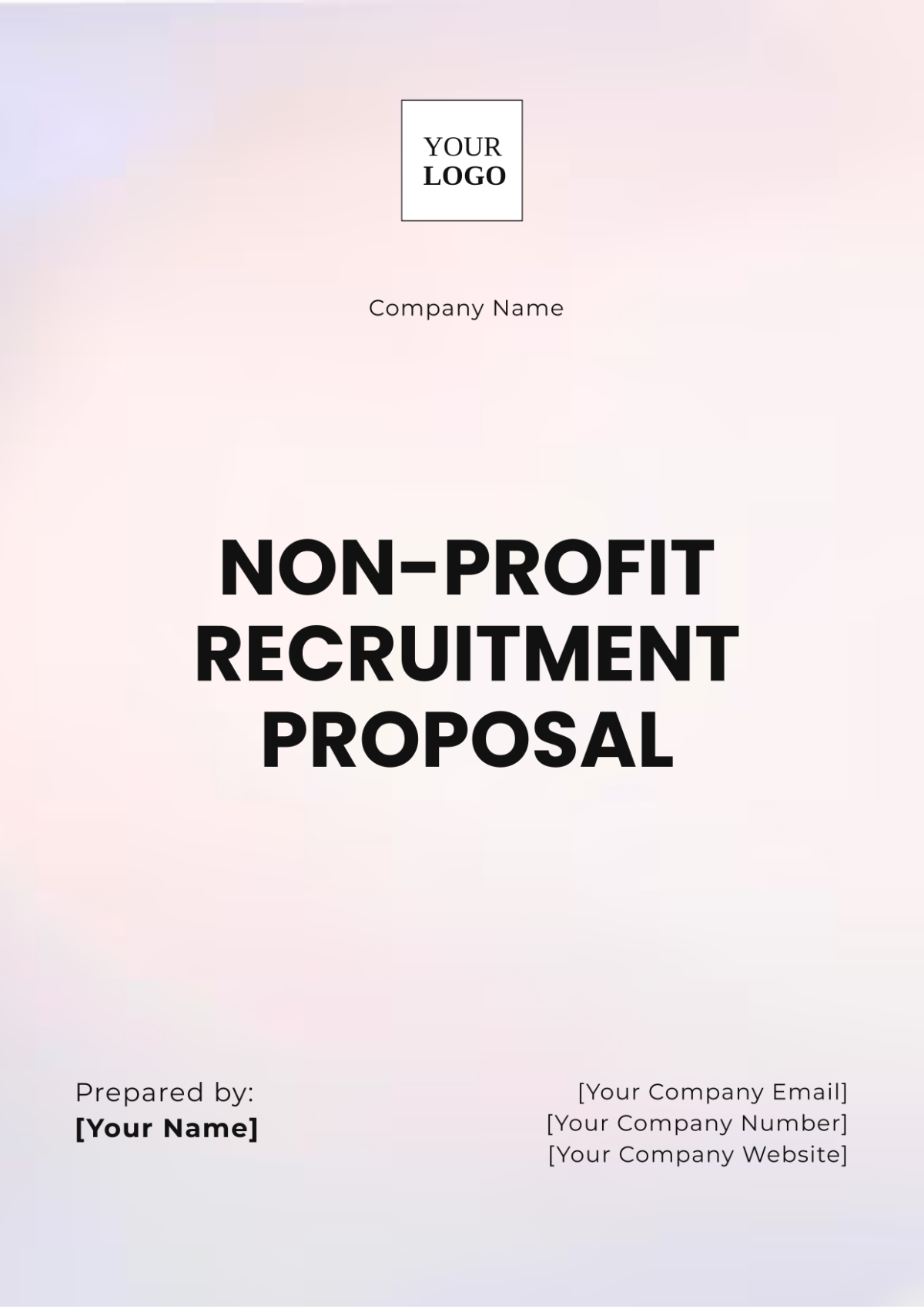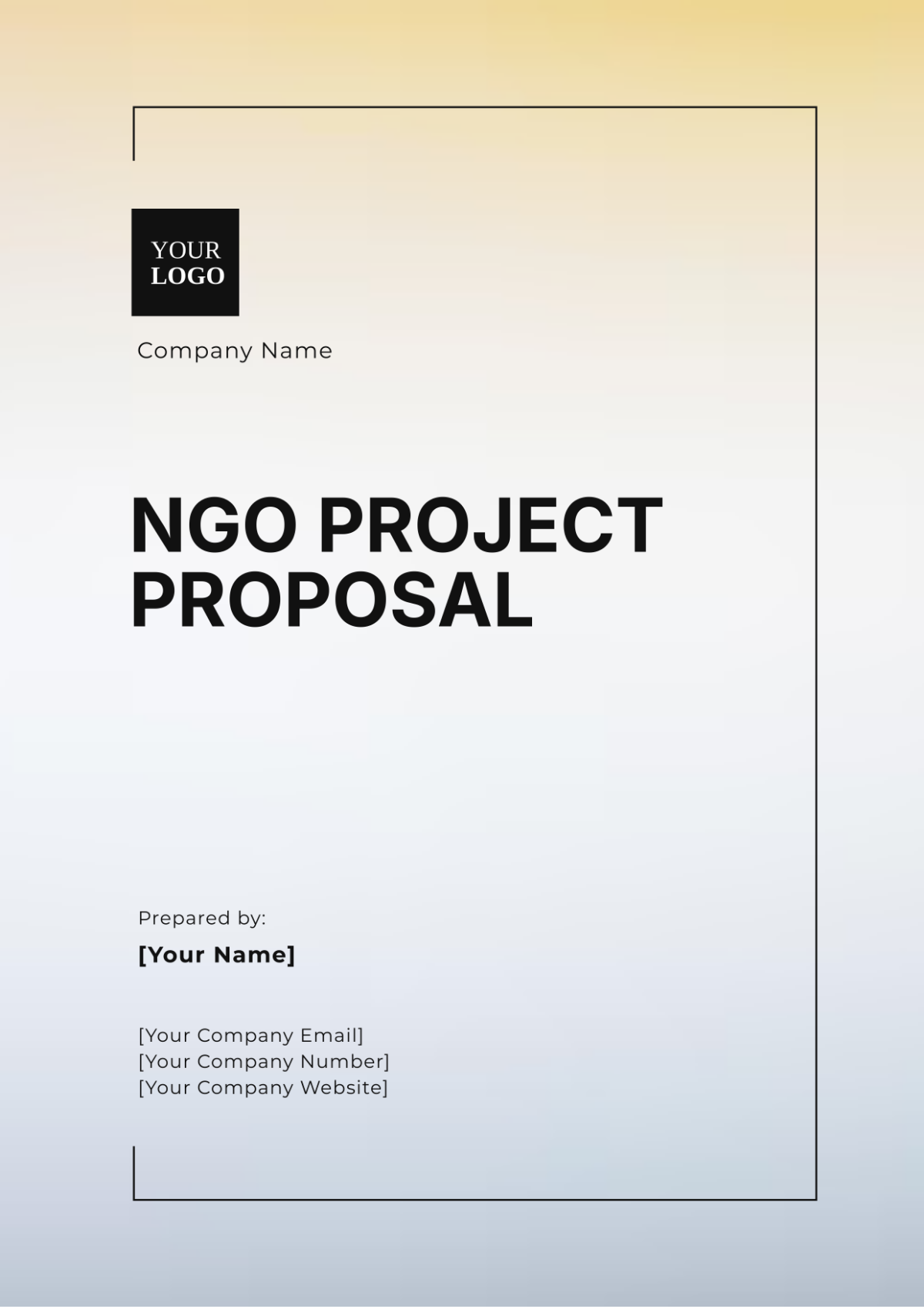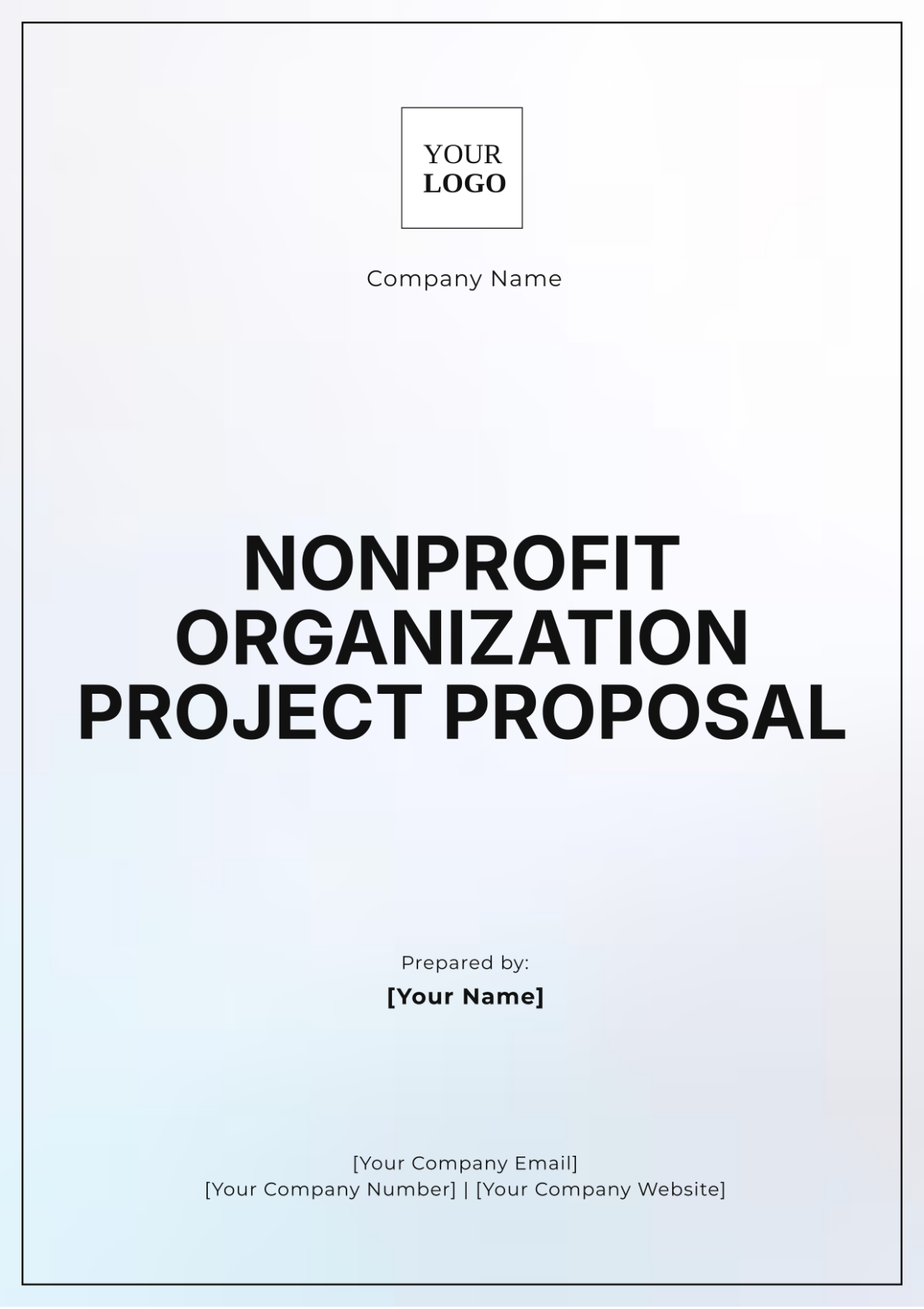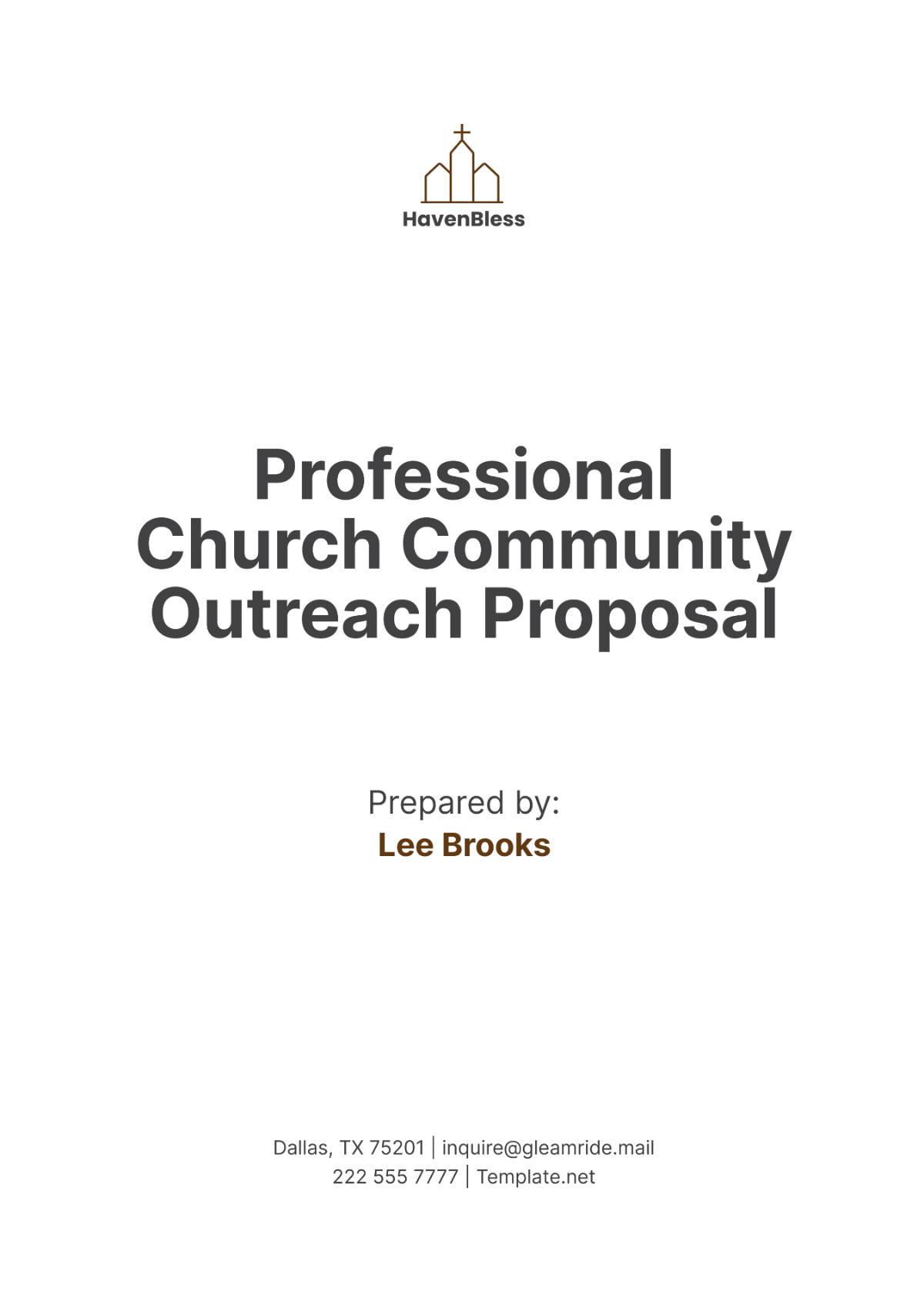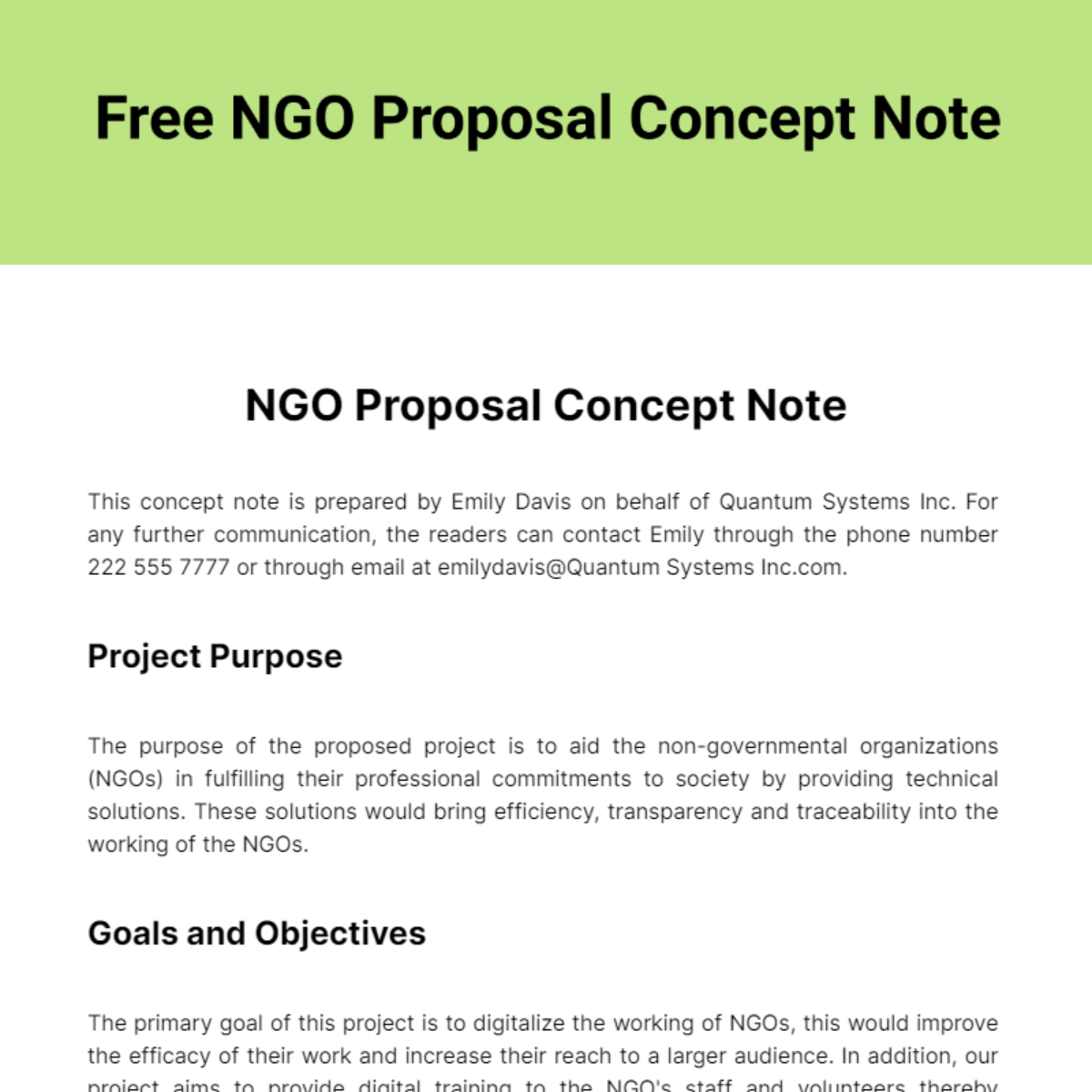Professional NGO Format Proposal
Prepared by: [Your Name]
Date: [Date]
I. Executive Summary
A. Purpose of the Proposal
This section should provide a concise overview of the proposal, including the problem your NGO seeks to address and the solution your organization proposes. Make sure to highlight the impact your project will have.
B. Key Objectives
State the main objectives of the project. What does your NGO hope to achieve? Keep this section clear and focused on measurable outcomes.
C. Target Audience/Beneficiaries
Describe the group(s) who will benefit from the project. Be specific about demographics, location, or other distinguishing characteristics.
II. Problem Statement
A. Description of the Problem
Provide a clear, well-researched description of the issue your NGO aims to address. Include data, reports, or case studies to back up your claims.
B. Evidence of the Need
Support the problem with facts and figures. You can include statistics, research studies, or personal stories that help demonstrate why this issue needs urgent attention.
C. Consequences of Inaction
Describe what will happen if the problem is not addressed. This section helps the reader understand the severity of the issue.
III. Project Goals and Objectives
A. Overall Goal
State the overarching goal of the project. This should be a broad, impactful statement that aligns with the mission of your NGO.
B. Specific Objectives
List the specific, measurable objectives you aim to achieve within a set timeframe. Use the SMART (Specific, Measurable, Achievable, Relevant, Time-bound) framework for clear targets.
C. Indicators of Success
Describe the indicators or metrics you will use to track progress and measure success.
IV. Project Implementation Plan
A. Activities and Timeline
Outline the main activities and tasks involved in implementing the project. Provide a timeline for each activity, showing how the project will unfold over time.
B. Methodology
Describe the approach or methodology your NGO will use to achieve the project objectives. Include any strategies, frameworks, or models that will guide the work.
C. Team and Responsibilities
List the key personnel responsible for the project, including their roles, qualifications, and experience. If applicable, mention any external partners or collaborators.
V. Budget and Financial Plan
A. Detailed Budget
Provide a breakdown of the expected costs involved in the project. This should include categories such as personnel, materials, equipment, travel, and other operational expenses.
B. Funding Sources
If applicable, list any current or potential funding sources. This may include grants, donations, or partnerships.
C. Financial Sustainability
Explain how the project will sustain itself beyond the funding period, if relevant. Will there be ongoing costs, and how will they be covered?
VI. Monitoring and Evaluation
A. Monitoring Plan
Explain how your NGO will monitor the progress of the project. Include the frequency of monitoring, tools or methods used, and who will be responsible for monitoring.
B. Evaluation Plan
Describe how you will evaluate the project's success at the end of the implementation phase. This could include surveys, focus groups, data analysis, or other methods to assess the impact.
C. Reporting and Accountability
Outline how progress will be reported to stakeholders and funders. Include the frequency of reports and the types of information that will be provided.
VII. Sustainability Plan
A. Long-term Impact
Discuss the long-term benefits of the project and how these benefits will continue after the project concludes.
B. Strategies for Sustainability
Describe the strategies your NGO will use to ensure the project’s long-term viability. This could include partnerships, local capacity-building, or community engagement.
VIII. Risk Management Plan
A. Identified Risks
List potential risks or challenges that may affect the success of the project, such as financial, political, or logistical risks.
B. Mitigation Strategies
Explain the strategies your NGO will implement to manage or minimize these risks.
IX. Conclusion
A. Summary of Key Points
Summarize the key elements of the proposal, reiterating the importance of the project and its potential impact.
B. Call to Action
Conclude by inviting support, collaboration, or funding, depending on the purpose of your proposal. Provide contact information and any next steps.
